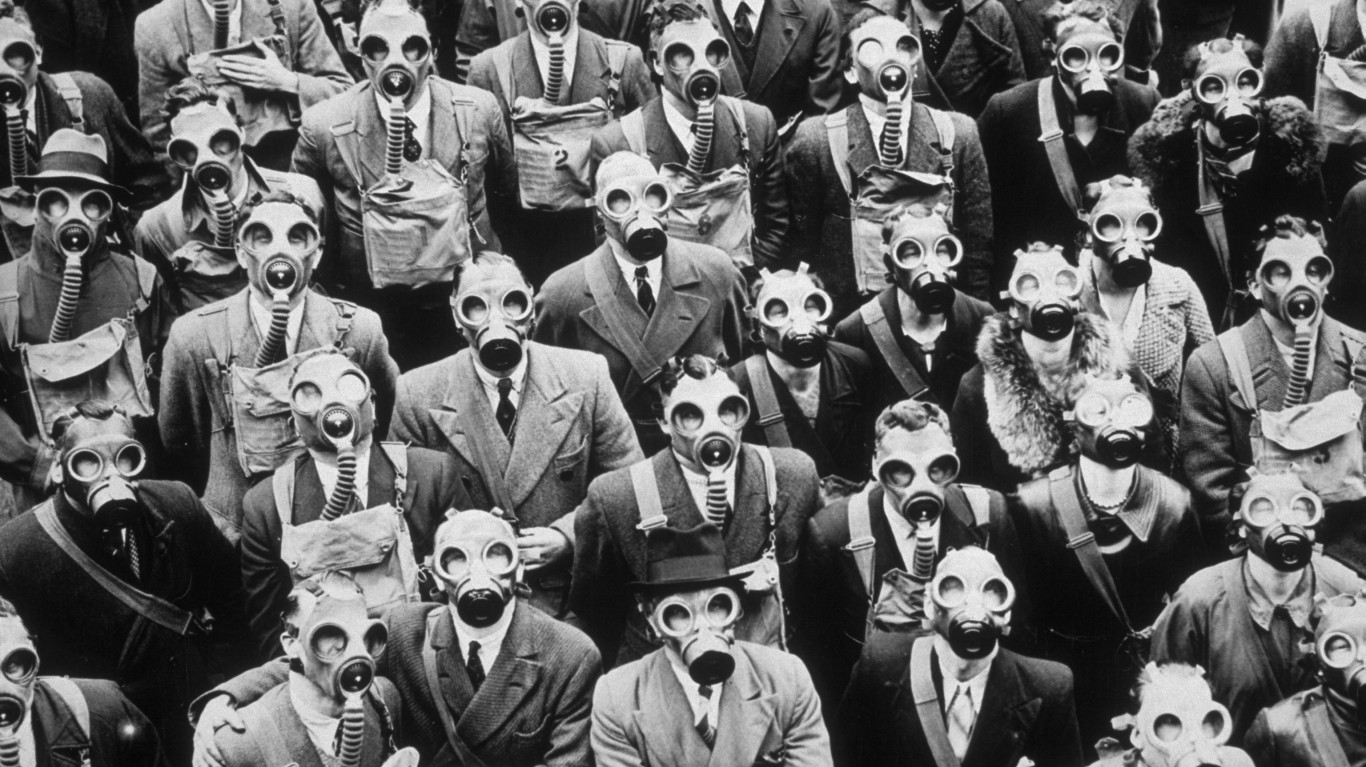
To those who haven’t lived – or aren’t living – through it, war often seems distant, geographically and notionally. We read of sieges, battles, destruction, death and understand how tragic they are, but mere words don’t always fully capture war’s horrors – or, for that matter, its triumphs.
Photographs – along with films and videos – can vividly and unforgettably portray devastation that is almost incomprehensible. They can put a human face, literally, on unspeakable tragedy. (These are the countries that suffered the most civilian casualties in World War II.)
Photographs can also sometimes portray moments of victory, even instances of a certain dark humor.
Astonishingly, the first photographic images of war date back 175 years, to 1847, when an American photographer, his name now long forgotten, used the newly invented French Daguerreotype process to record scenes of the Mexican-American war.
Not long afterwards, in the 1850s, Roger Fenton, a British photographer, took memorable images of the Crimean War. He was followed by New York-born Mathew Brady, who photographed both sides of our own Civil War (and left us iconic portraits of Abraham Lincoln). Another Brit, Ernest Brooks, turned scenes of World War I into stunning works of art, often through the use of silhouettes.
Among the now-famous photographers who recorded World War II are Margaret Bourke-White, Robert Capa, and Henri Cartier-Bresson. Countless memorable images of the conflict, however, were also captured by anonymous or less well-known photographers, often working for wire services or newspapers or even for branches of the armed forces – even though the pictures they produced may live on forever. (Sometimes such pictures are difficult to look at, like these horrifying images of Nazi death camps.)
To assemble a collection of some of the most unforgettable images of World War II, 24/7 Tempo reviewed historical photo archives from sources, including from Getty Images and the Library of Congress. Some are tragic, some are hopeful, some are simply records of everyday life in wartime.
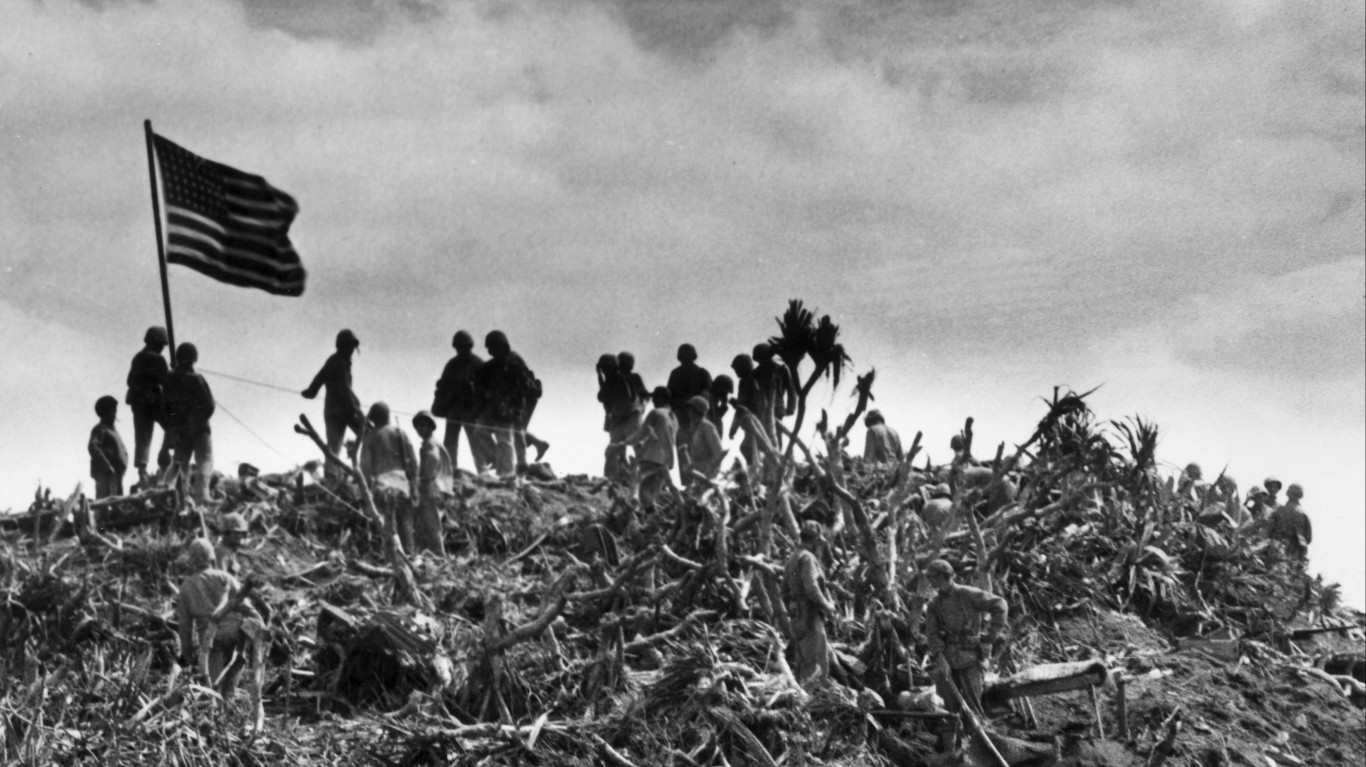
Raising the flag on Iwo Jima
Marines raising the American flag on Mount Suribachi in Iwo Jima on Feb. 23, 1945, near the end of the War in the Pacific.
[in-text-ad]
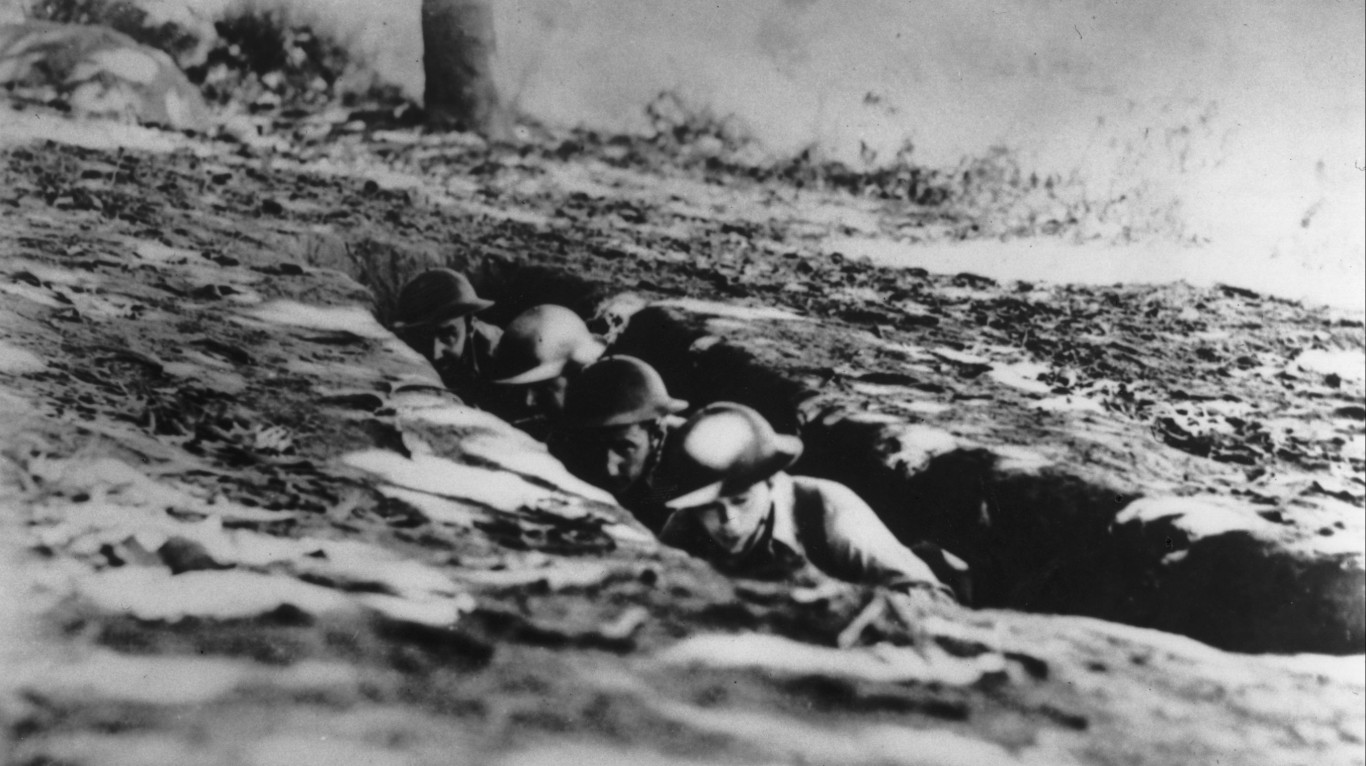
A fox hole in the Philippines
American and Filipino soldiers sharing a fox-hole during the battle for the Bataan Peninsula, April 7, 1942.
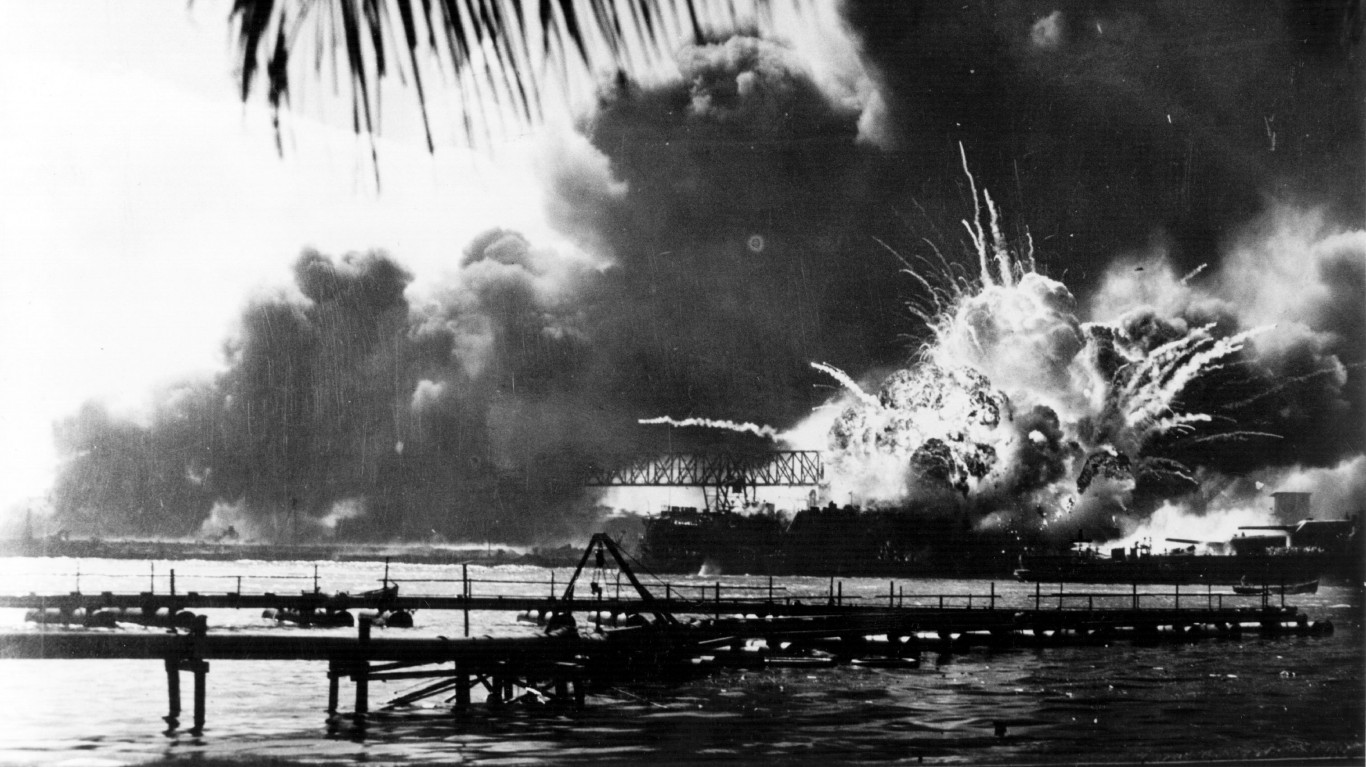
The attack on Pearl Harbor
An American destroyer, the USS Shaw, explodes when hit by Japanese bombs during the attack on Pearl Harbor, Dec. 7, 1941.
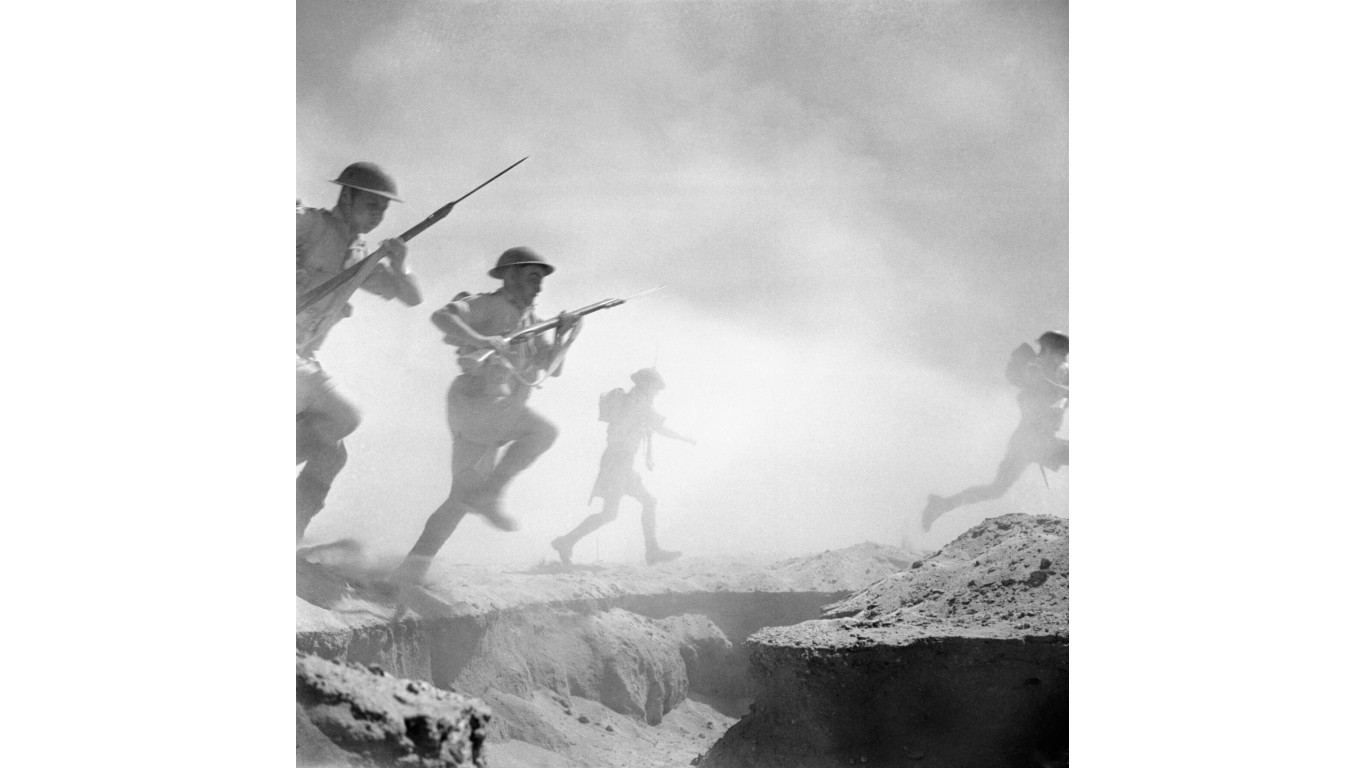
Advancing at El Alamein
Soldiers advancing during the Second Battle of El Alamein in Egypt in the fall of 1942.
[in-text-ad-2]
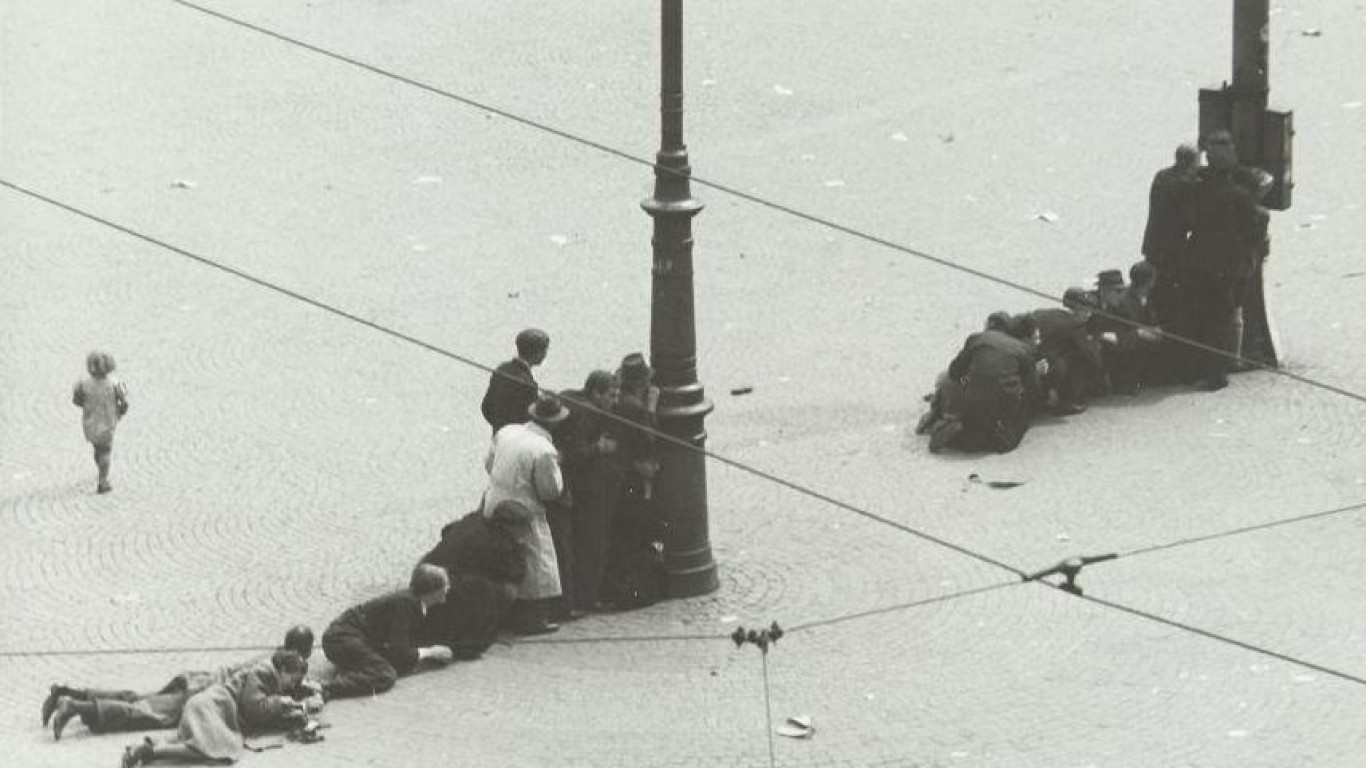
Hiding from bullets on Dam square Amsterdam
Civilians hiding behind lamp posts on Dam Square in Amsterdam as members of the German navy turn a machine gun on the crowd, killing as many as 32, during victory celebrations on May 7, 1945 – two days after the German surrender.
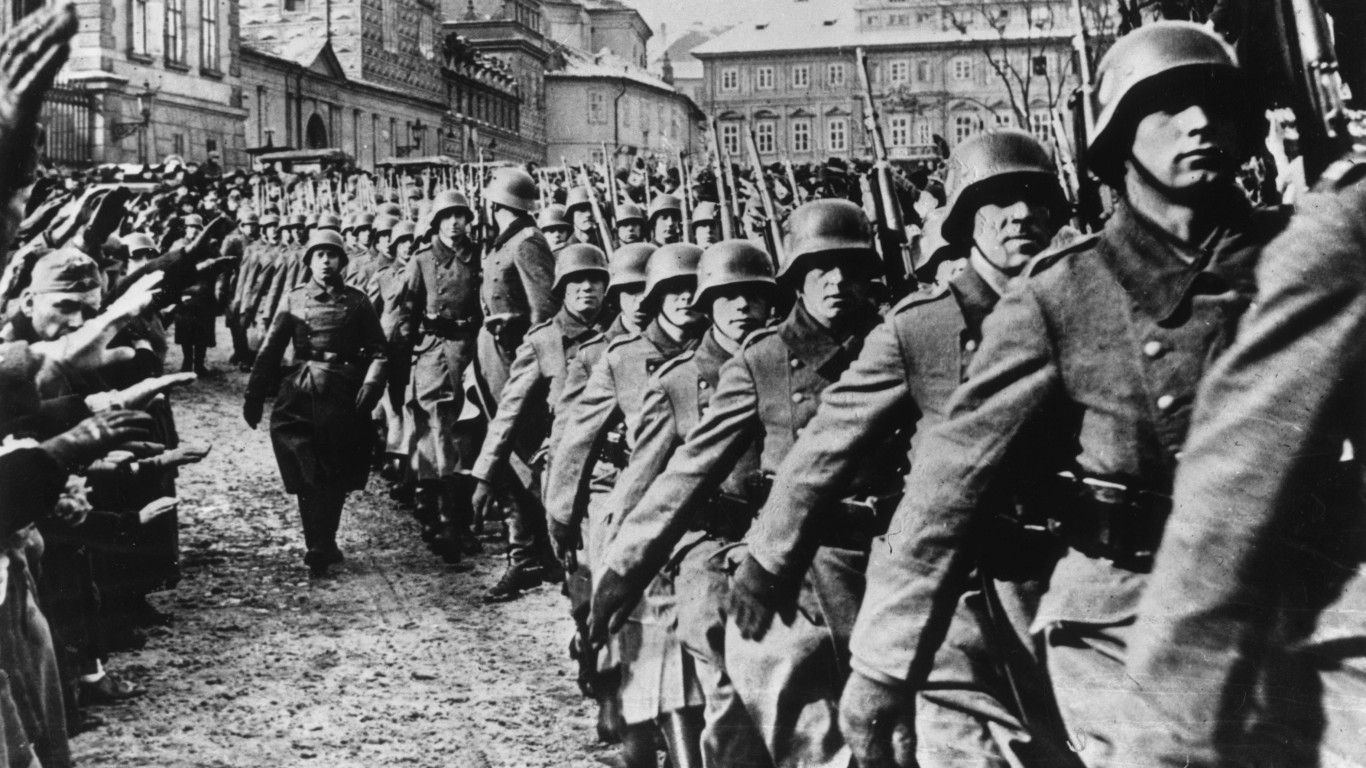
The Nazis invade
German troops marching into Prague during the invasion of Czechoslovakia, March 30, 1939.
[in-text-ad]
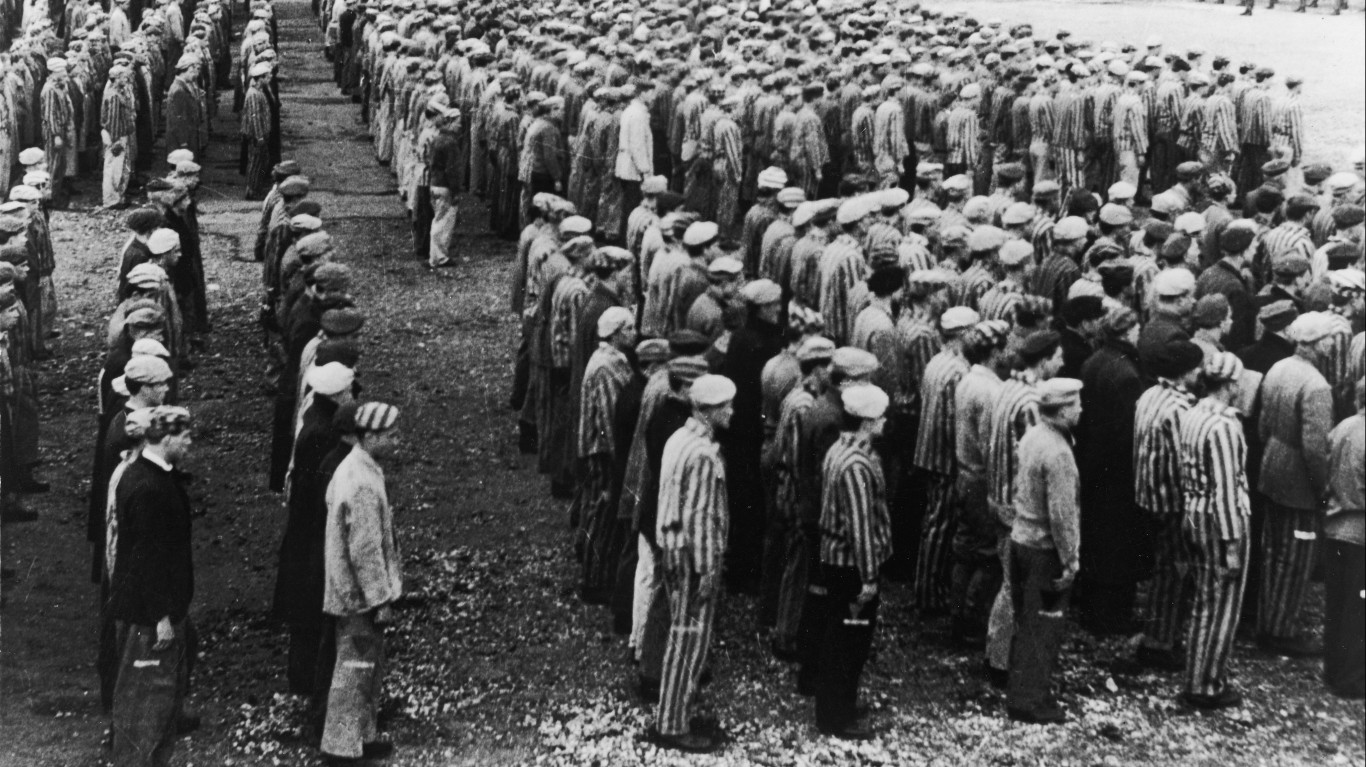
| Prisoners at Buchenwald
Prisoners line up for roll call at the Buchenwald concentration camp in Germany in about 1943.
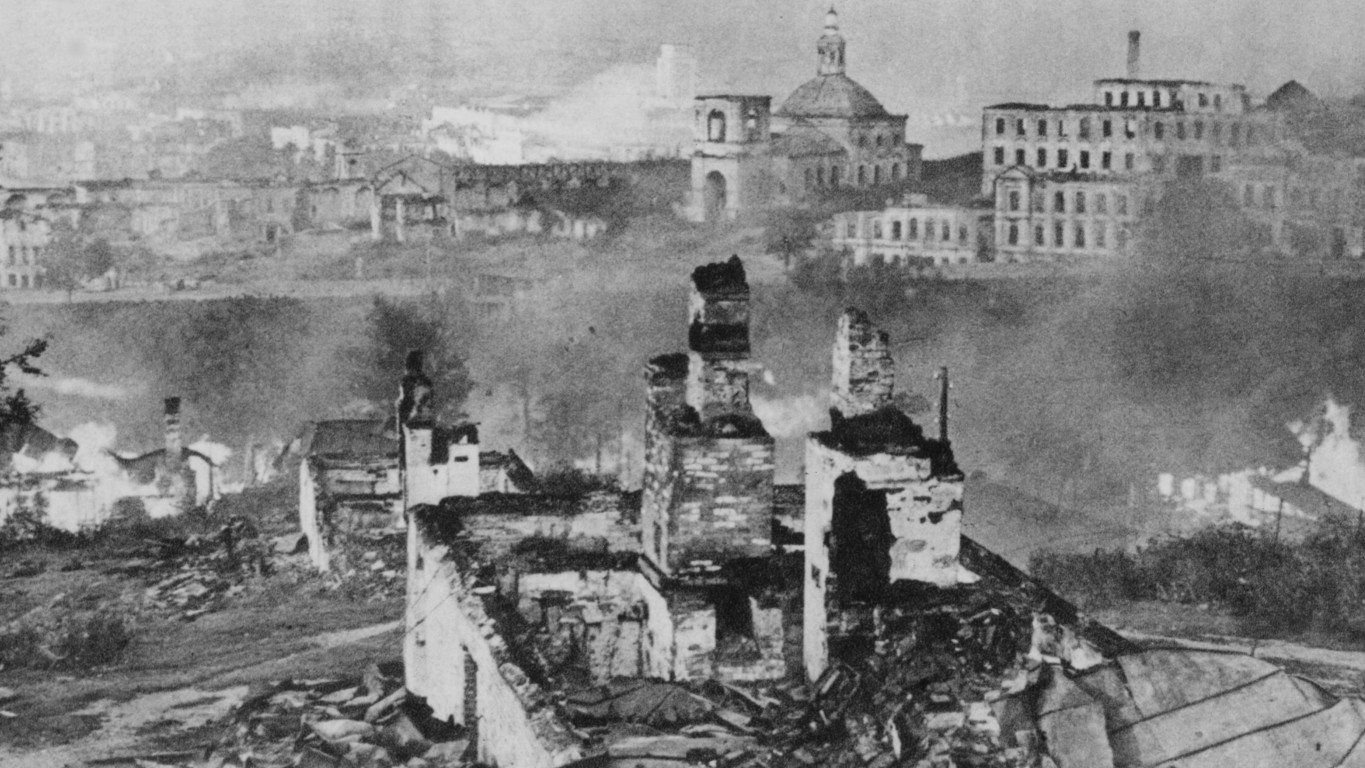
Smolensk in ruins
Destroyed buildings in the Soviet Union city of Smolensk, during the so-called Smolensk Operation of 1943.
[in-text-ad-2]
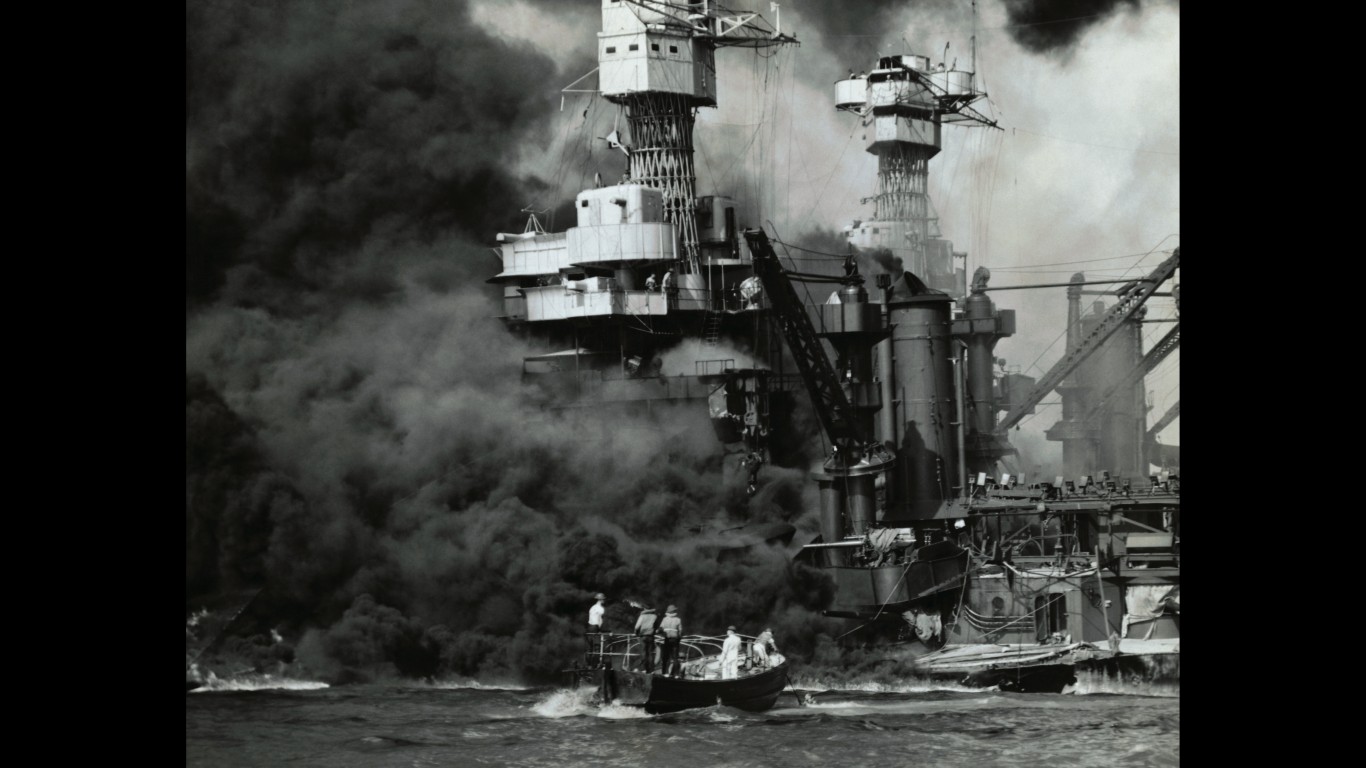
Rescuing sailors from a burning ship
American sailors rescue survivors from the USS West Virginia during the Japanese attack on Pearl Harbor, Dec. 7, 1941.

Cutting through barbed wire
A German soldier, covered by flame throwers, cuts through the defensive line in an unknown location.
[in-text-ad]
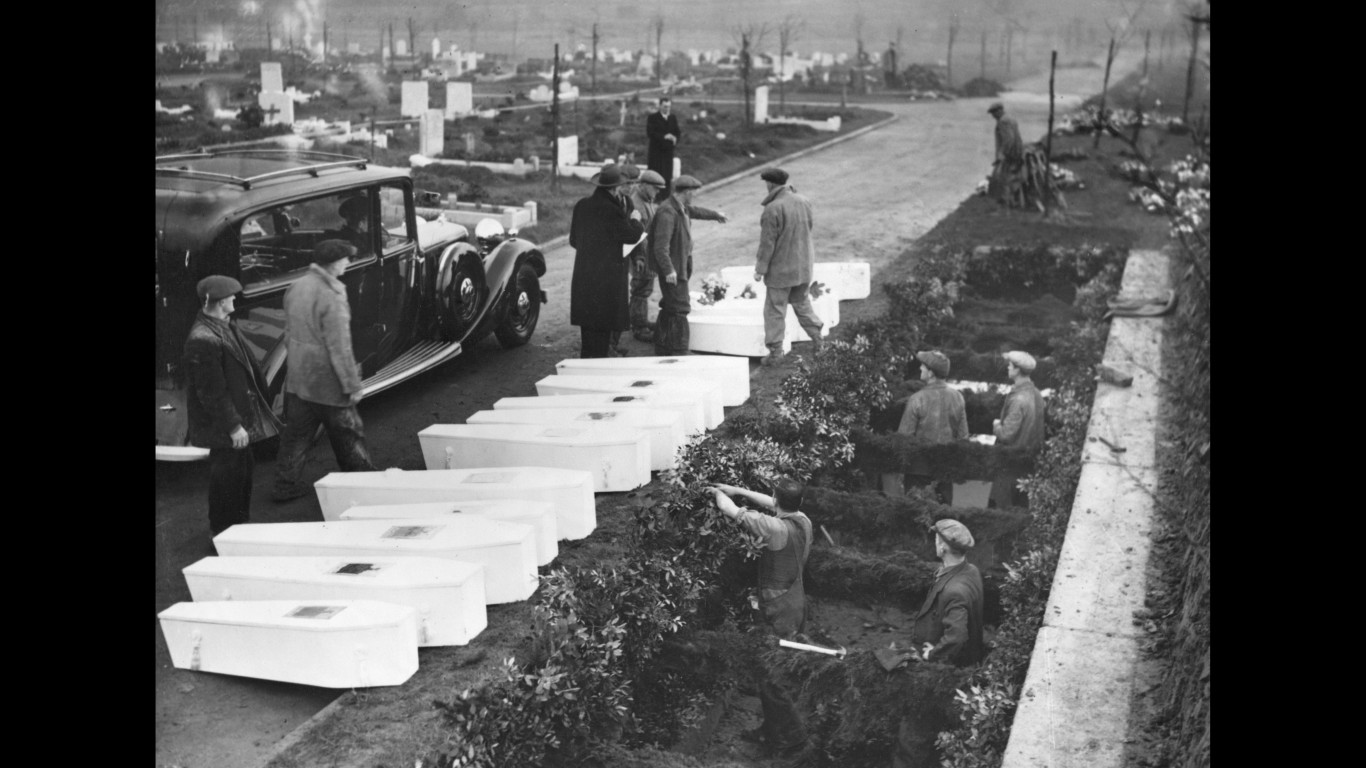
Burying British bombing victims
Victims of a Nazi air raid in London being laid to rest.
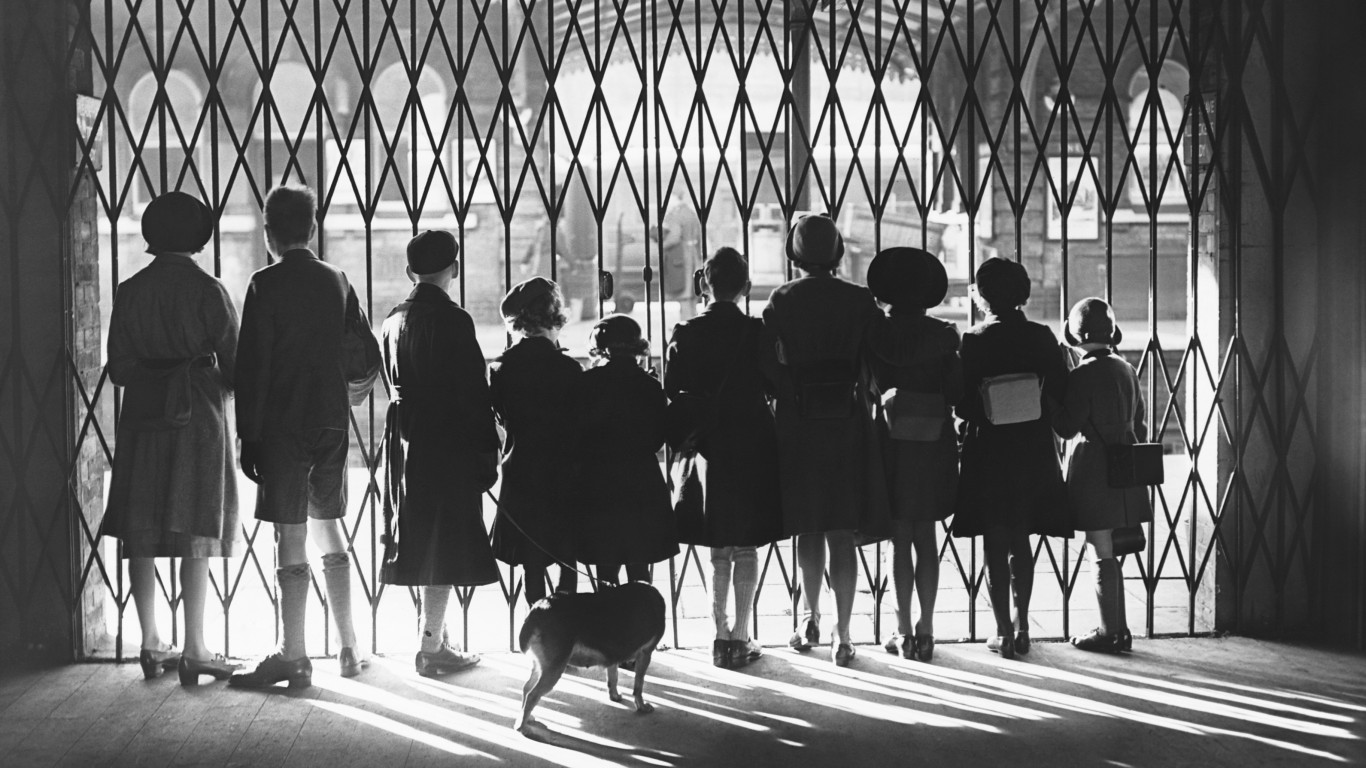
Waiting for evacuees from London
Children waiting for the train from London to arrive at Ipswich Station in Suffolk, bringing more evacuees transported out of the capital for their safety, in December 1939.
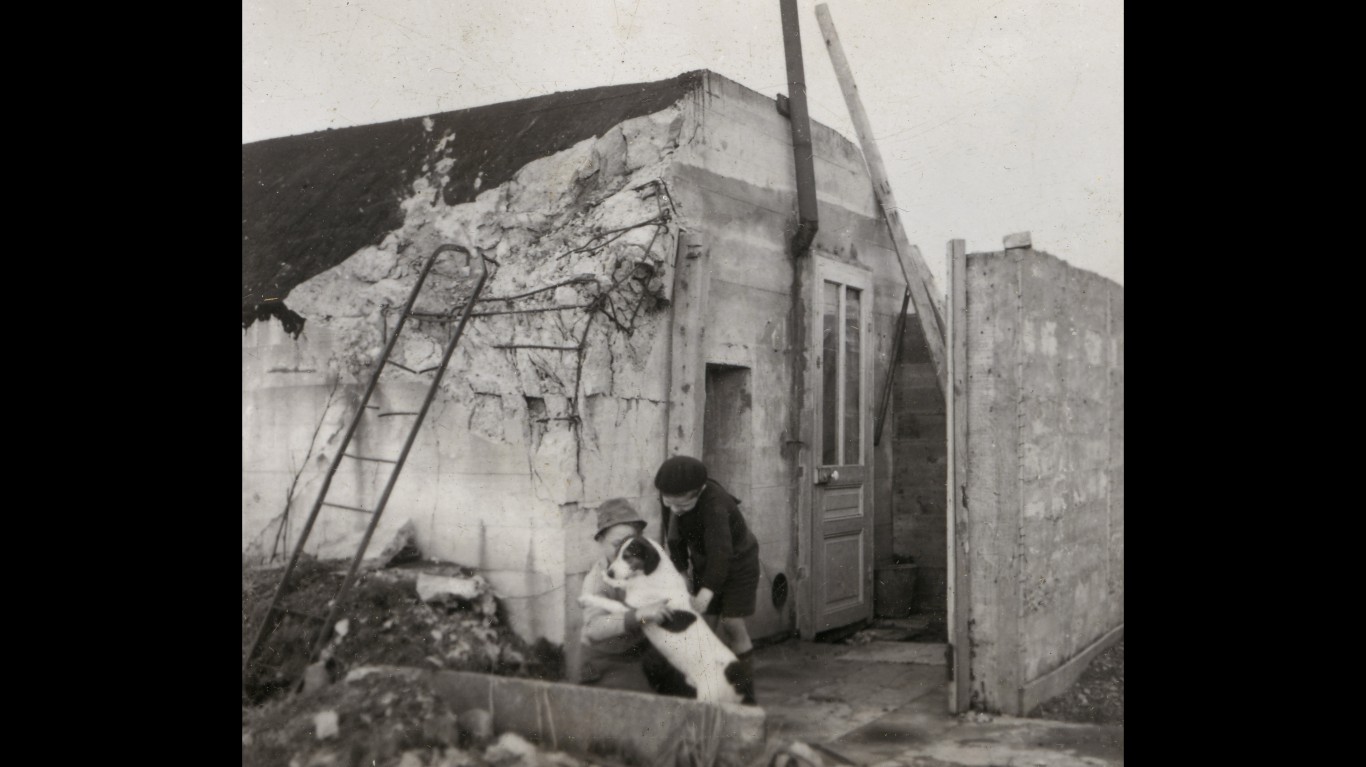
Hugging a dog
Children hugging a dog outside a ruined house in Le Portel, in Pas-de-Calais in far northern France, February 1945.
[in-text-ad-2]
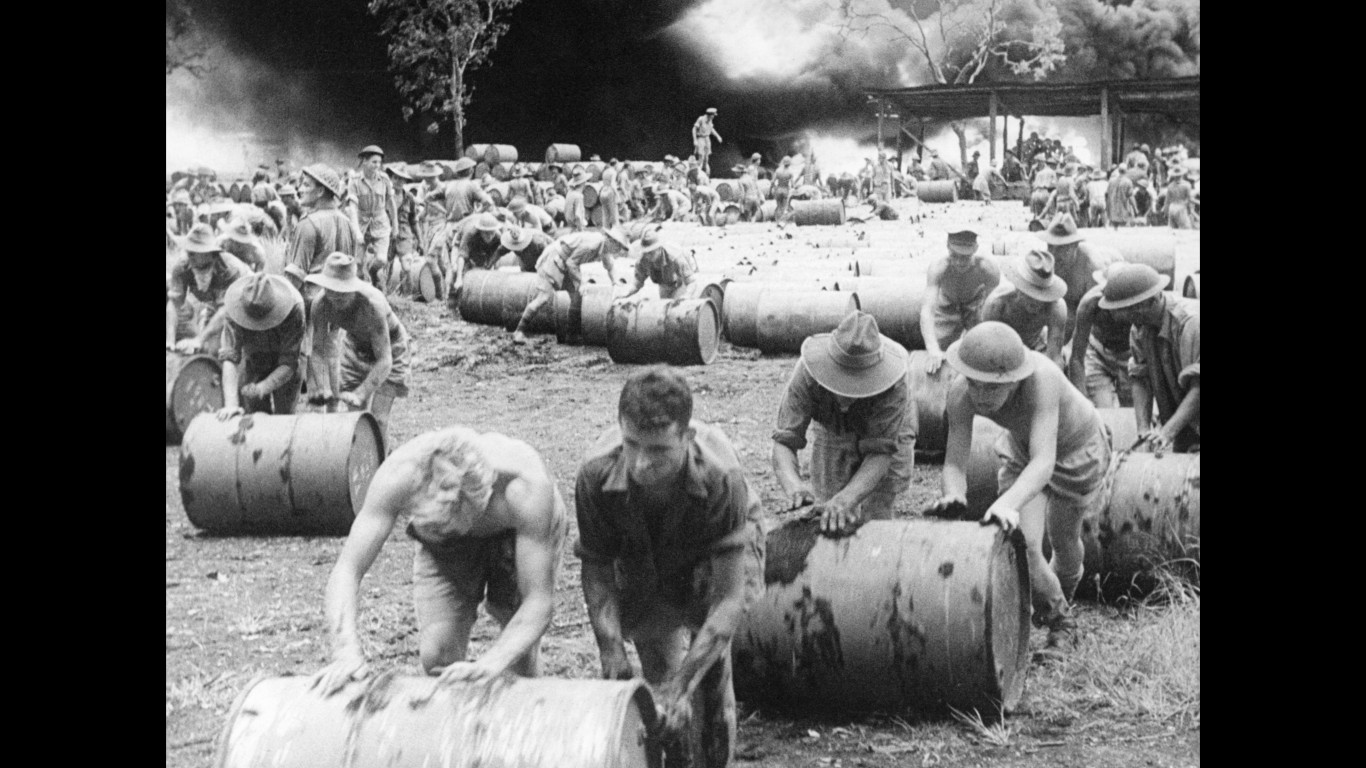
Saving precious fuell
Australian troops rolling oil barrels away from fire caused by direct hits from Japanese bomber planes during a raid on an Allied oil reserves.
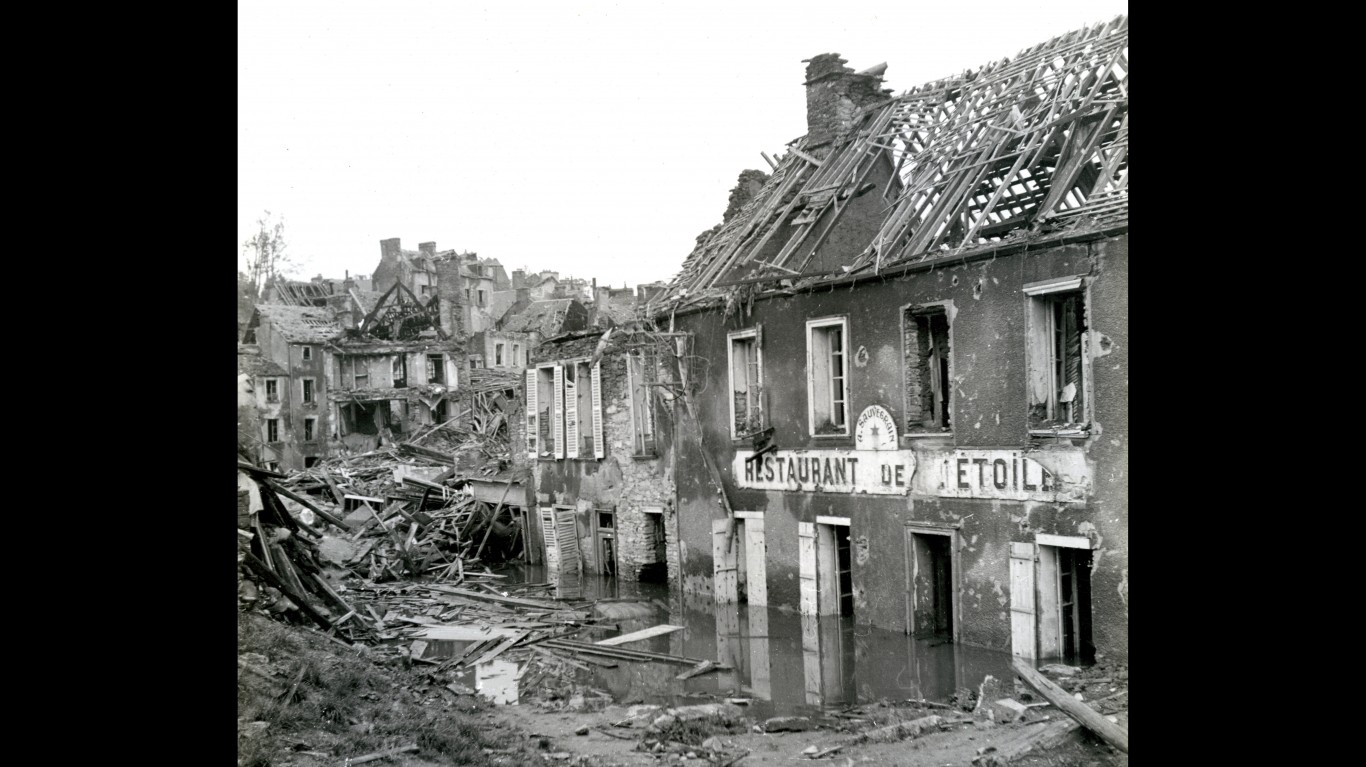
Devastation in Saint-Lô
The northern French city of Saint-Lô lies in ruins in November 1944.
[in-text-ad]
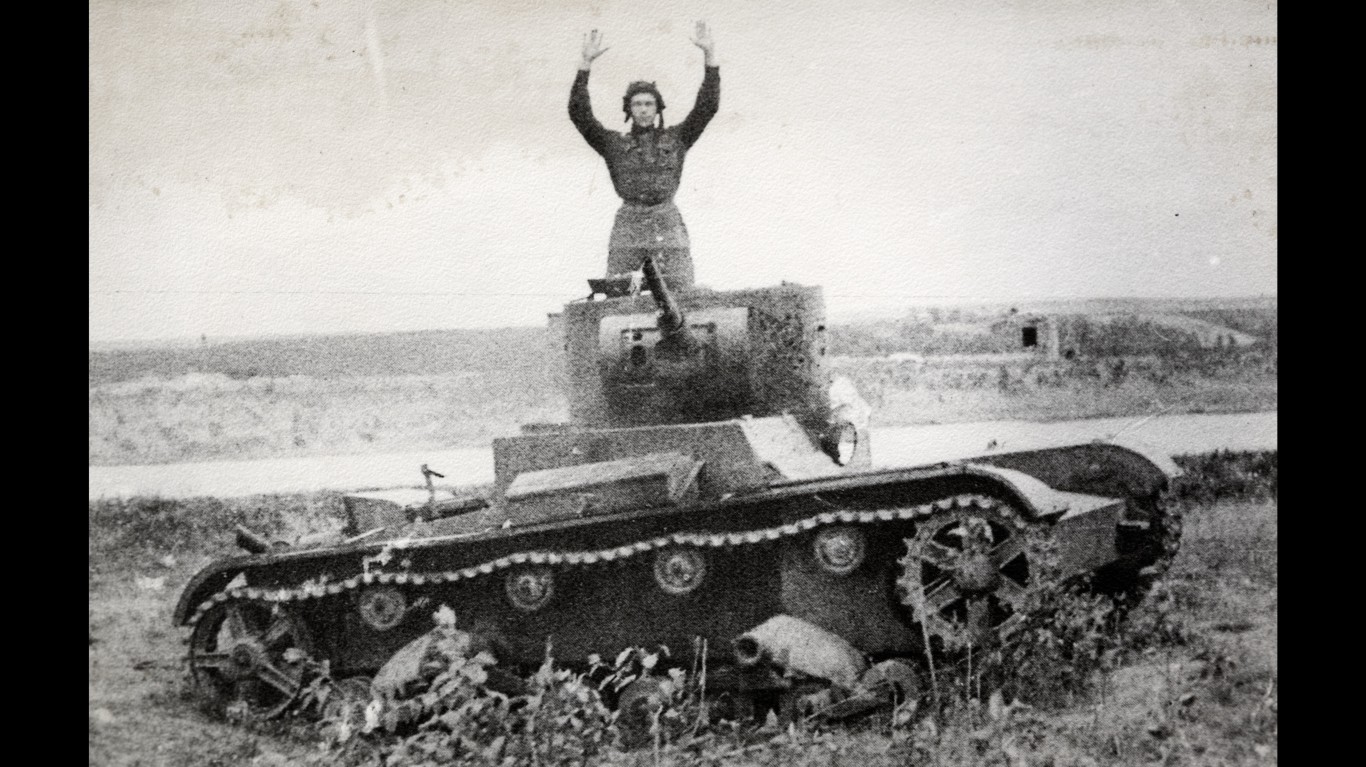
A Russian surrendering
A Russian soldier with a T-26B light tank surrendering during an unspecified battle.
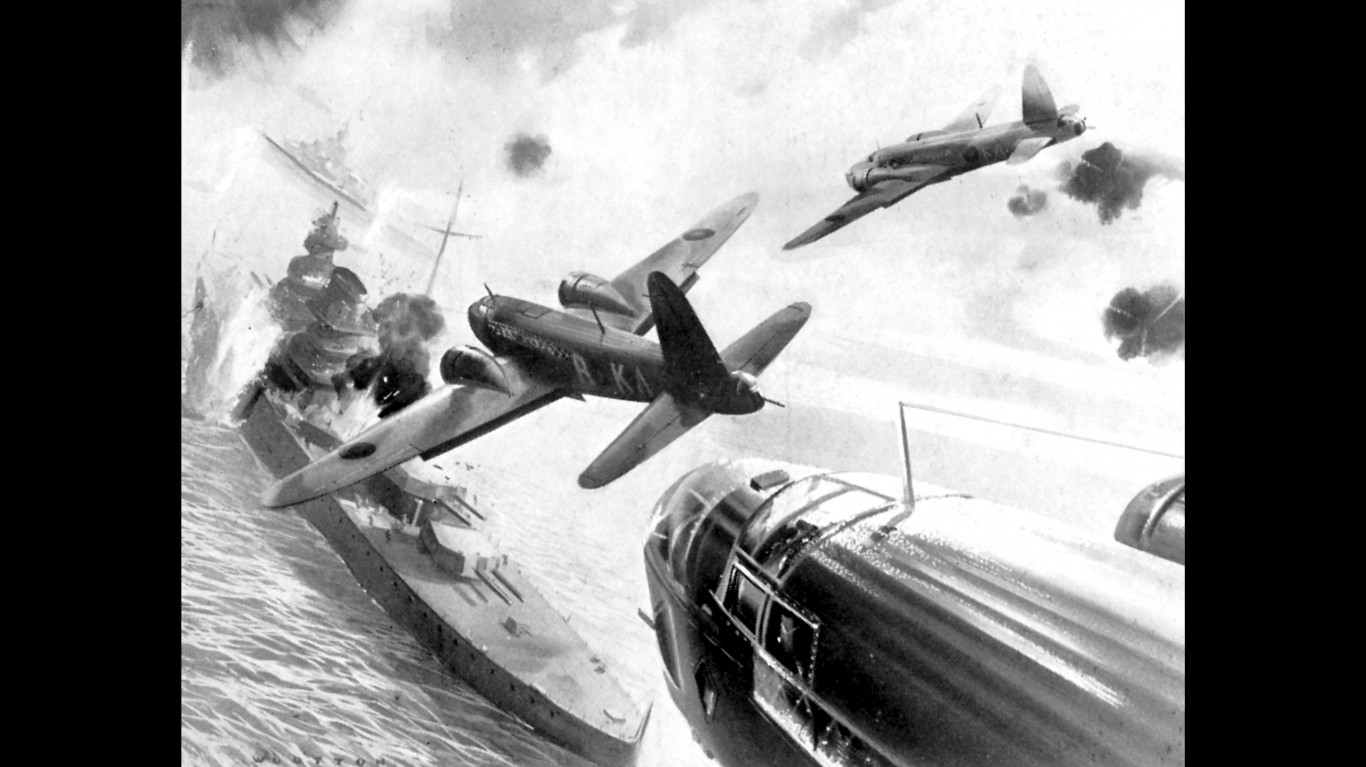
German warships attacked
Royal Air Force bombers attacking German warships at Heligoland, Norway, circa December 1939.
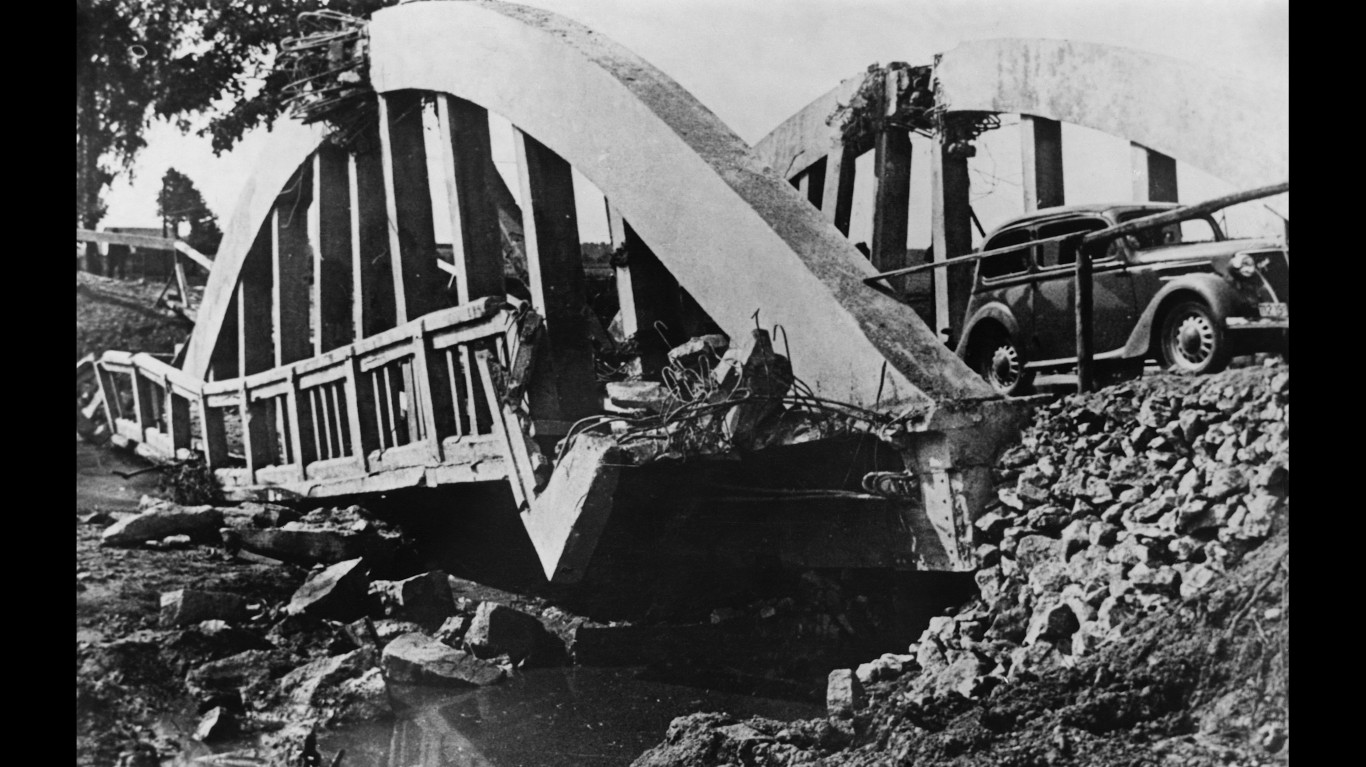
A bridge destroyed
A bridge somewhere in Poland after having been hit by German bombs.
[in-text-ad-2]
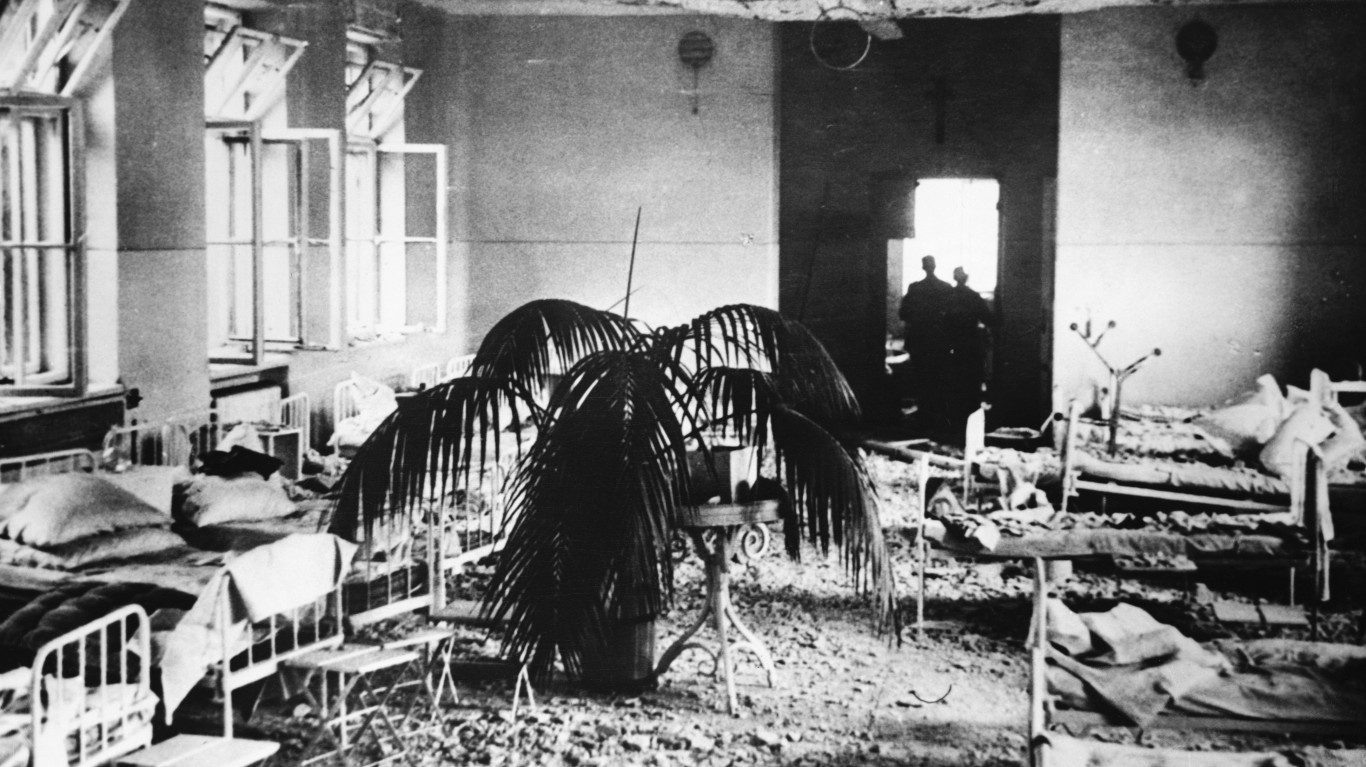
A bombed out hospital
A destroyed ward in the Catholic Hospital of the Transfiguration in Praga, a Warsaw suburb, during the Nazi invasion of Poland, September 1939.
Russian civilians flee
Russian non-combatants fleeing their wrecked homes during the Battle of Leningrad, Dec. 10, 1942.
[in-text-ad]
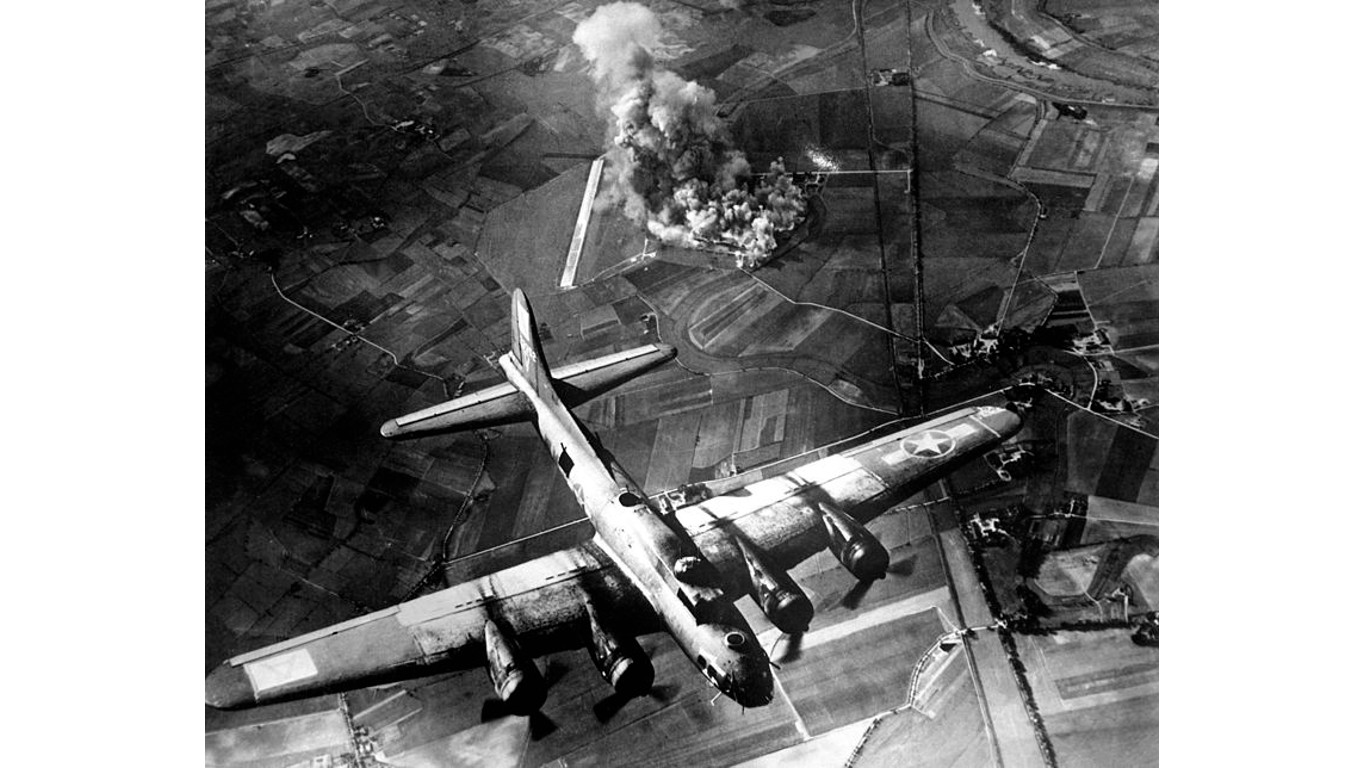
A German aircraft factory bombed
Planes from the 8th Air Force bombing the Focke-Wulfe factory in Marienburg, Germany, which produced fighters for the Nazis, circa 1943
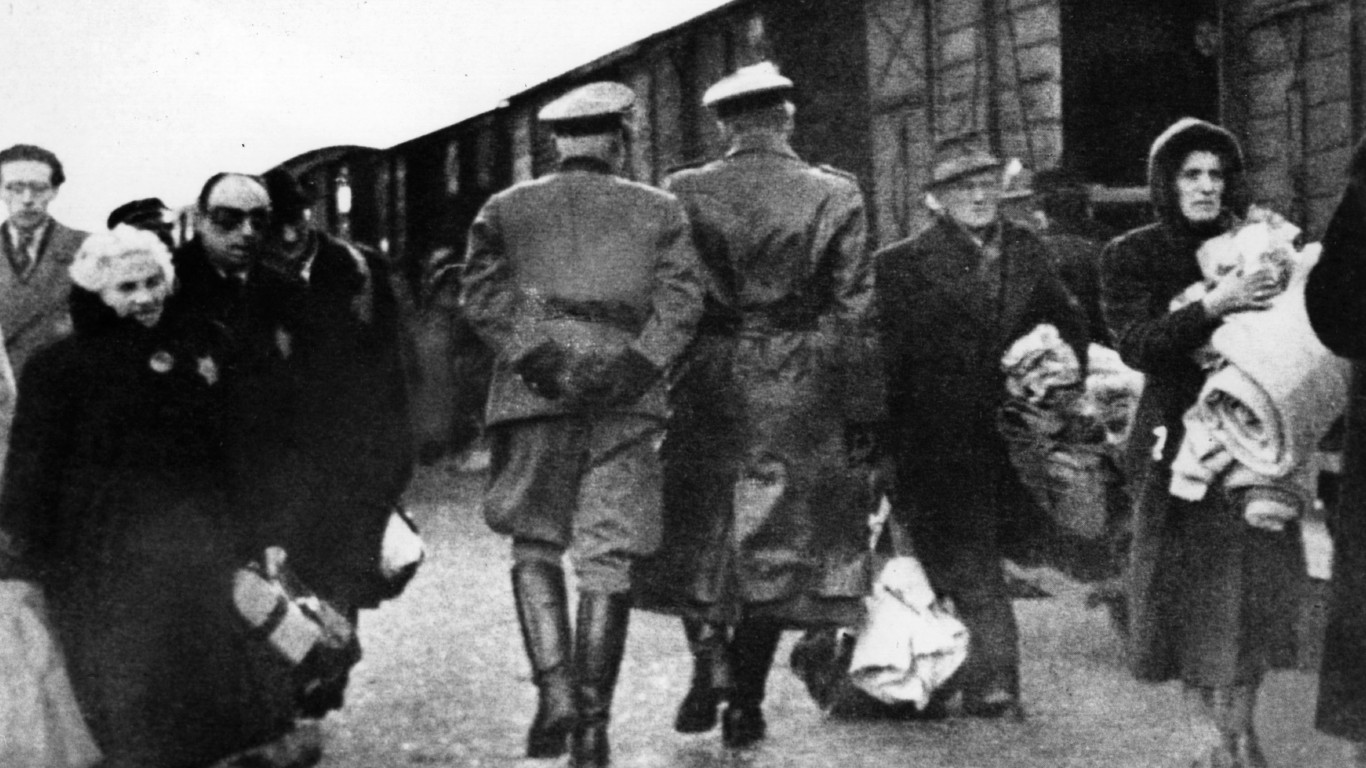
Jews deported
Jews in an unspecified location being deported on trains to concentration camps as Nazi officers supervise, circa 1941.
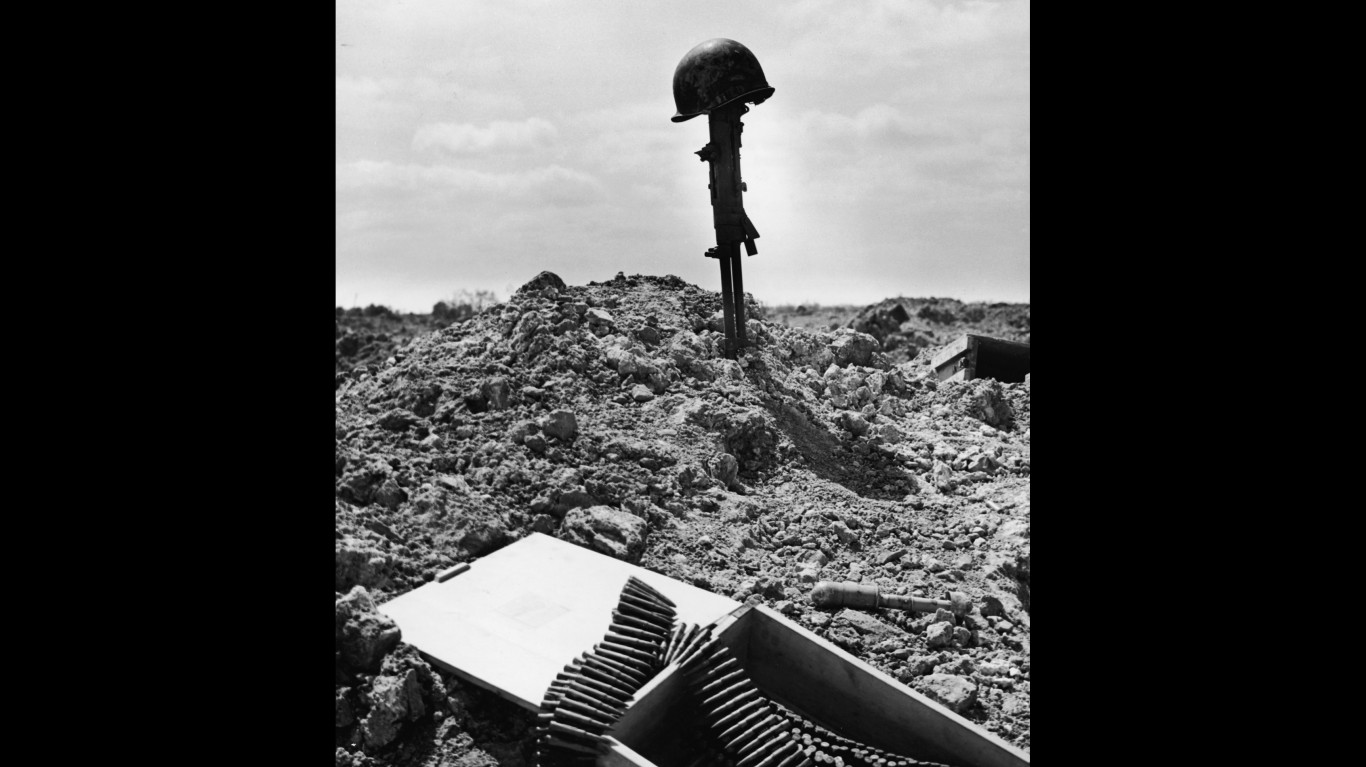
Marking an American grave
A makeshift headstone for an American soldier killed during the Normandy invasion on June 6, 1944.
[in-text-ad-2]
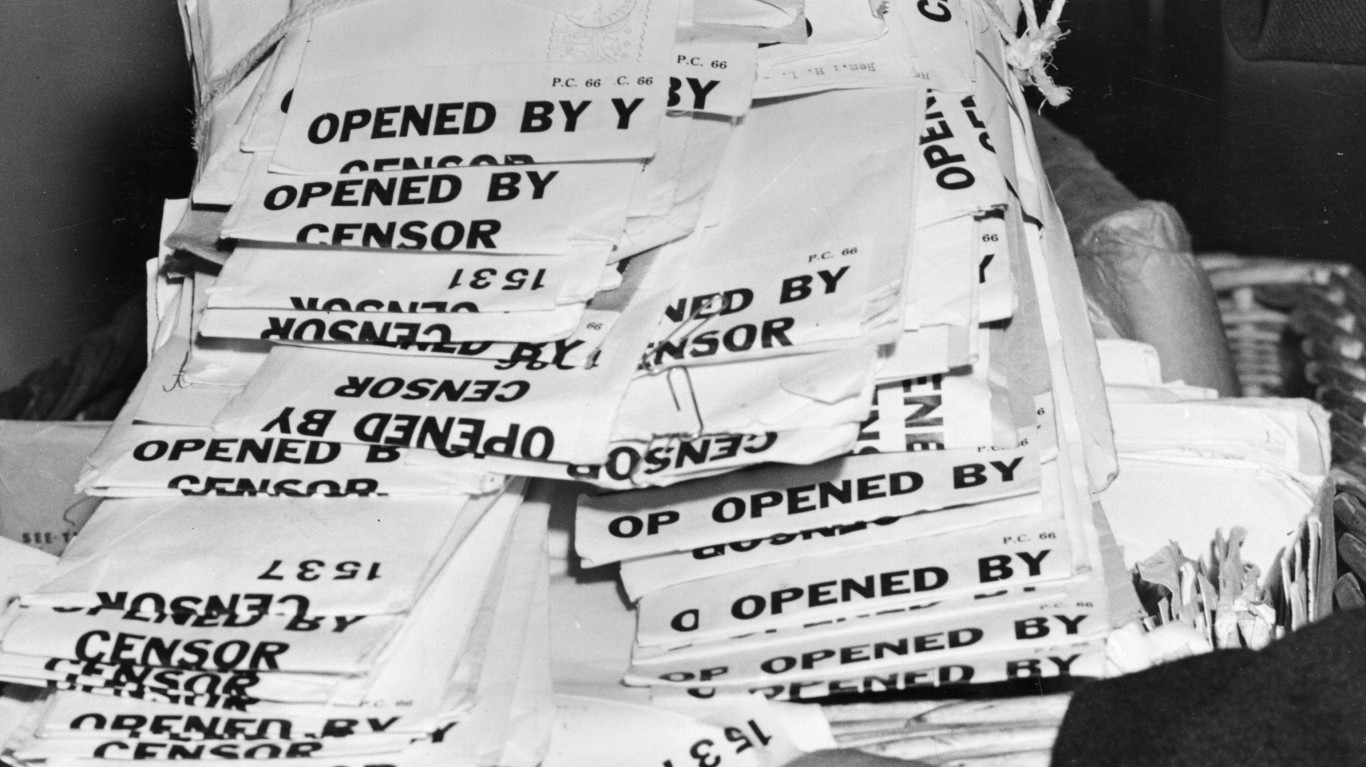
Opened by a censor
A pile of letters, probably in England, read by censors for sensitive material before okayed for delivery, circa November 1939.
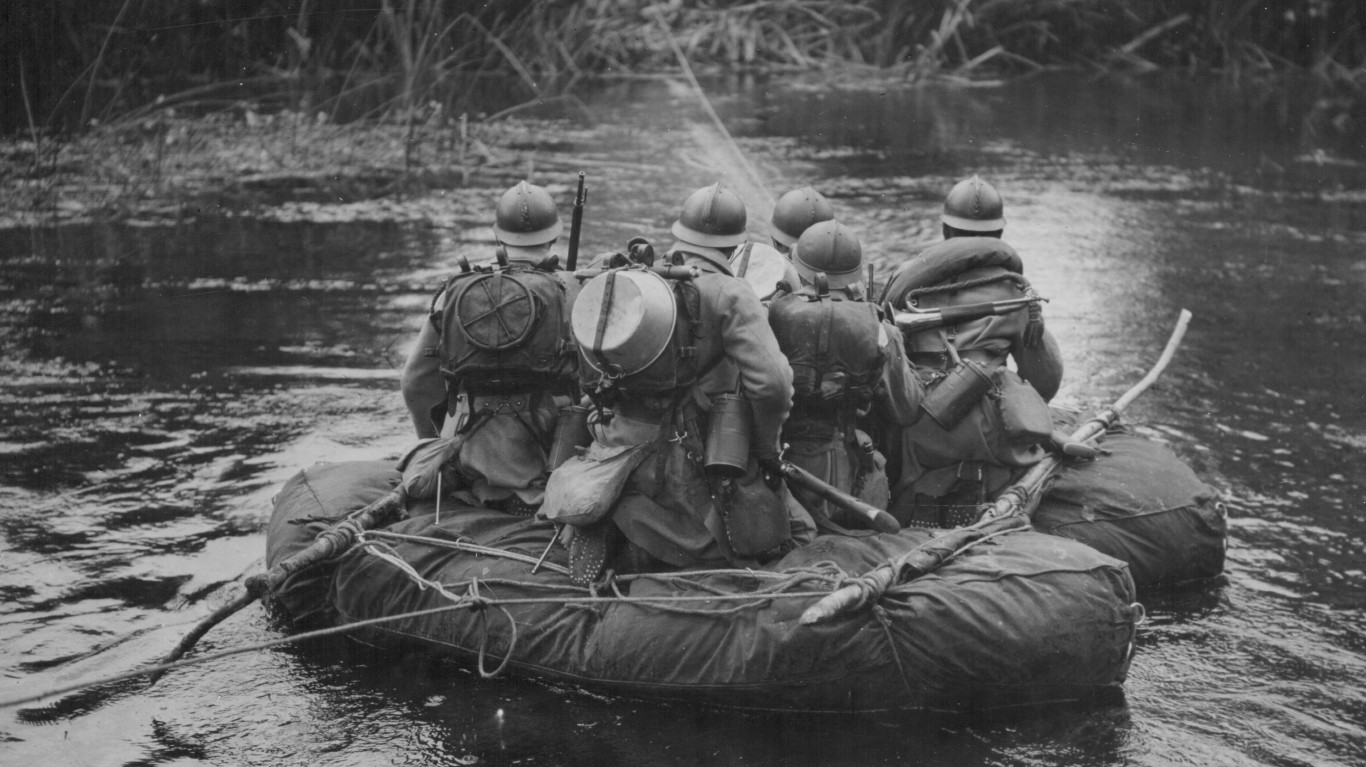
The French army afloat
French soldiers conduct maneuvers on a raft on the Orne River in Normandy in 1937.
[in-text-ad]

Trying out gas masks
Londoner telephone operators and engineers trying on their masks at the anti-gas civilian training center in Gloucester, circa February 1937.
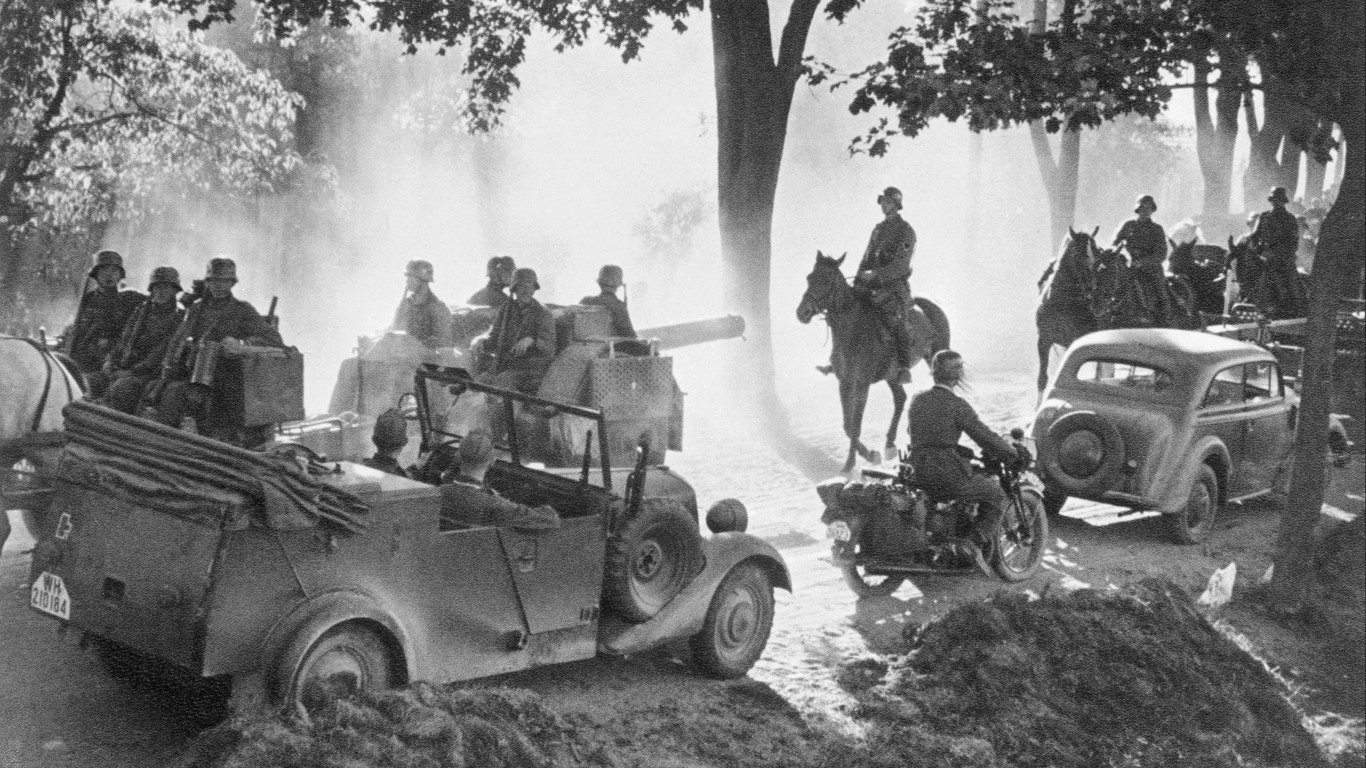
Germans on the move
Nazi soldiers advancing along a country road through Poland.
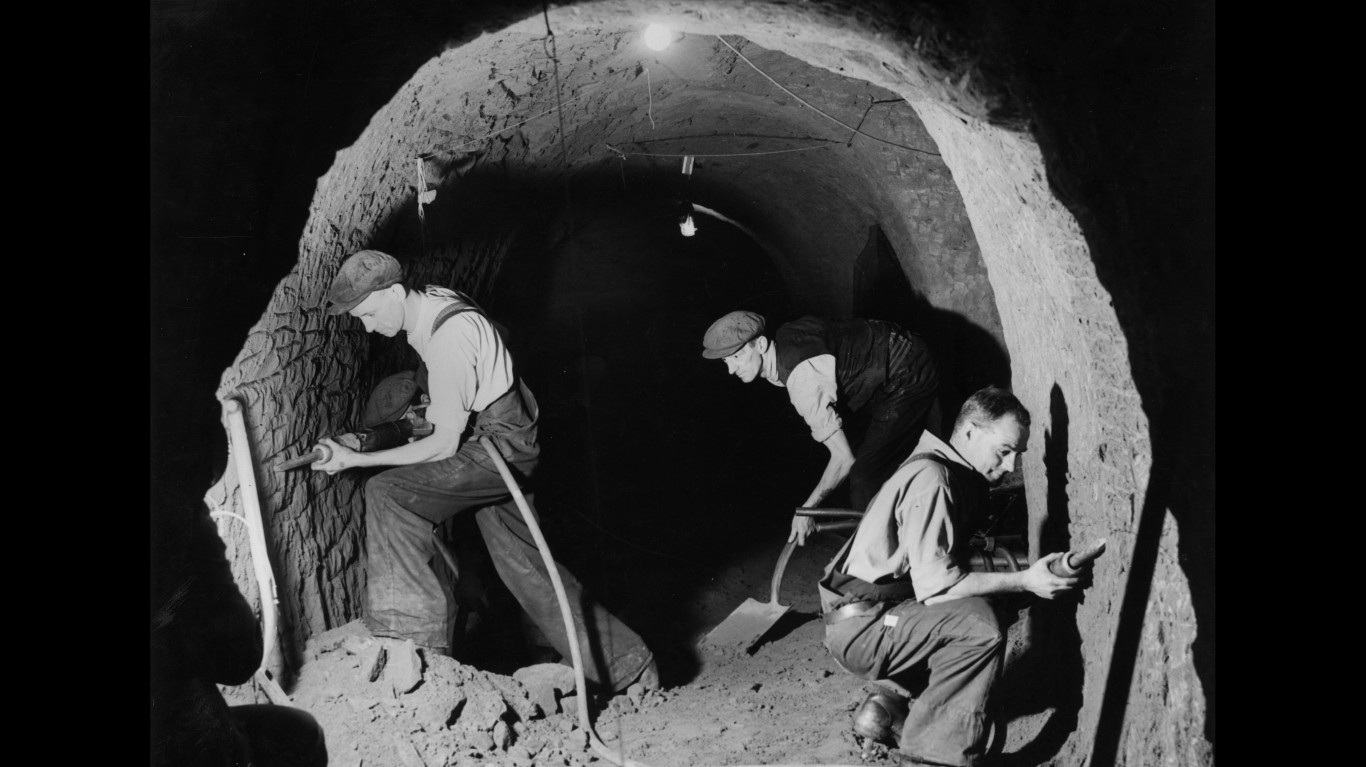
Digging shelters
Workmen digging air raid shelters in Stockport, near Manchester.
[in-text-ad-2]
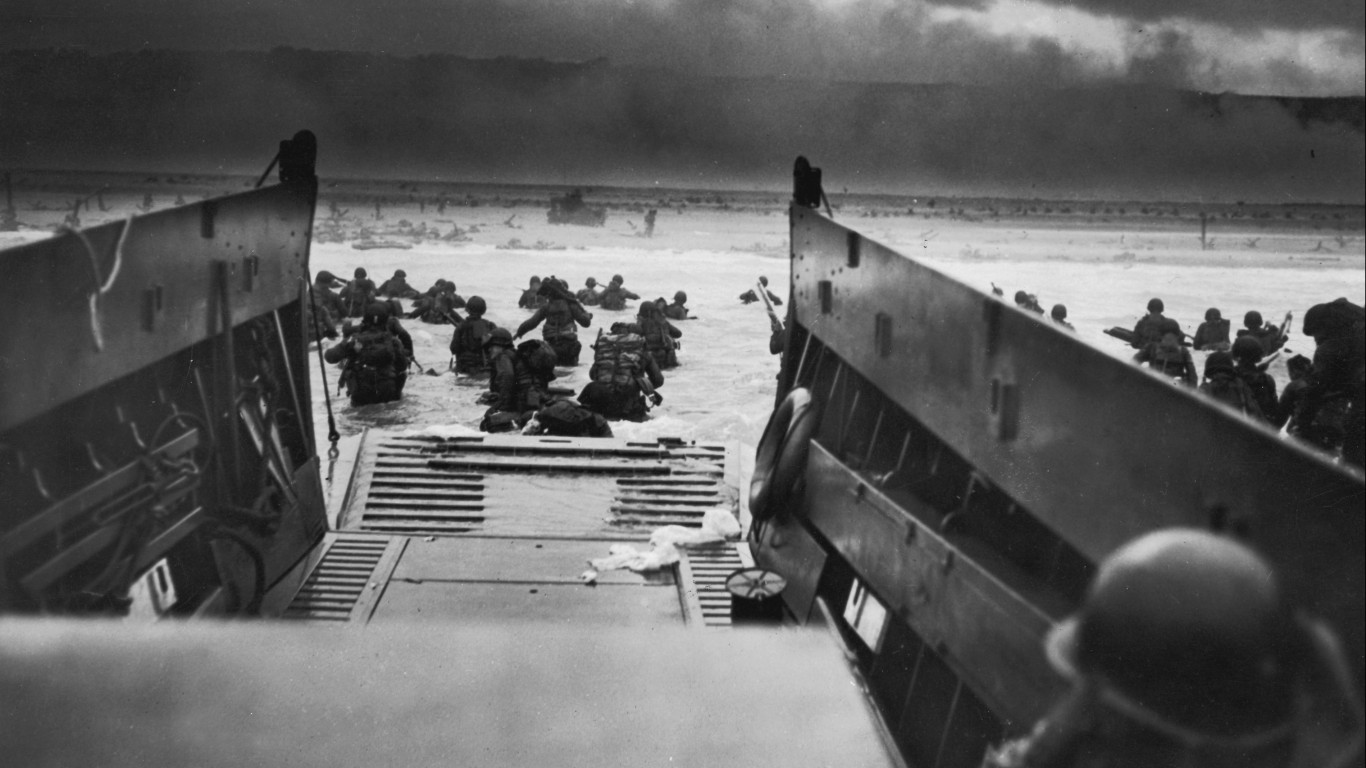
Landing on the beach in Normandy
Soldiers wading ashore from a landing craft during the Allied D-Day invasion of France along the Normandy coast, June 6, 1944.
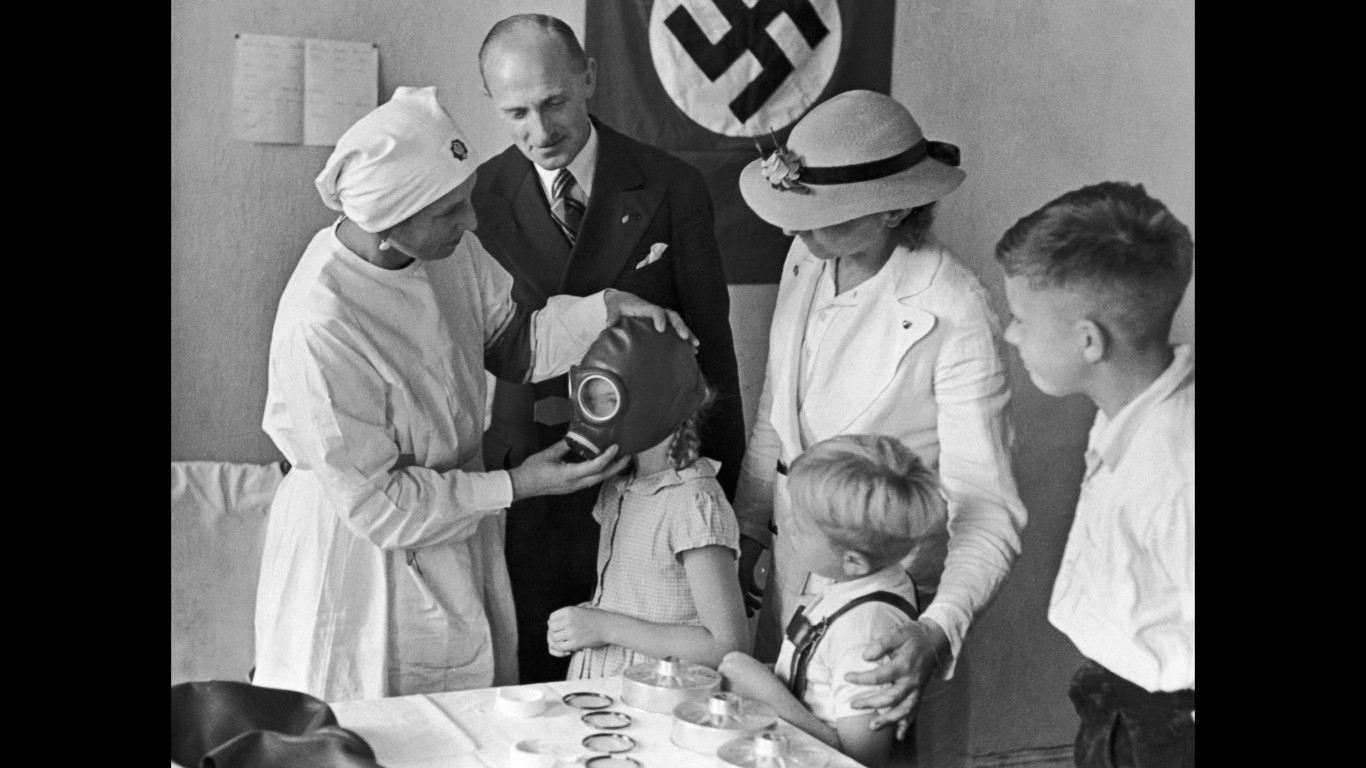
Gas masks for the young
A German nurse fits a young girl with a government-issued gas mask, September 1937.
[in-text-ad]
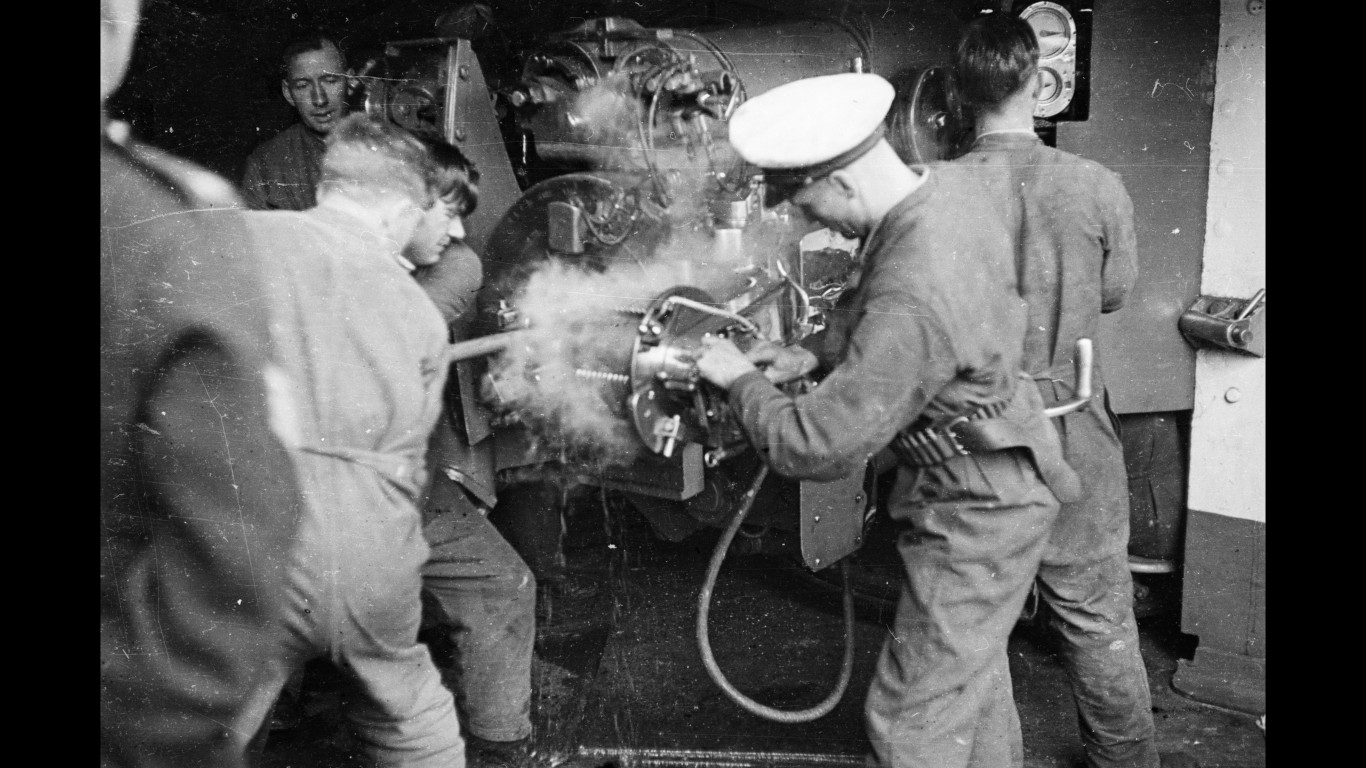
Loading the guns
Sailors loading the guns aboard the Royal Navy’s dreadnought battleship the HMS Iron Duke, 1939.
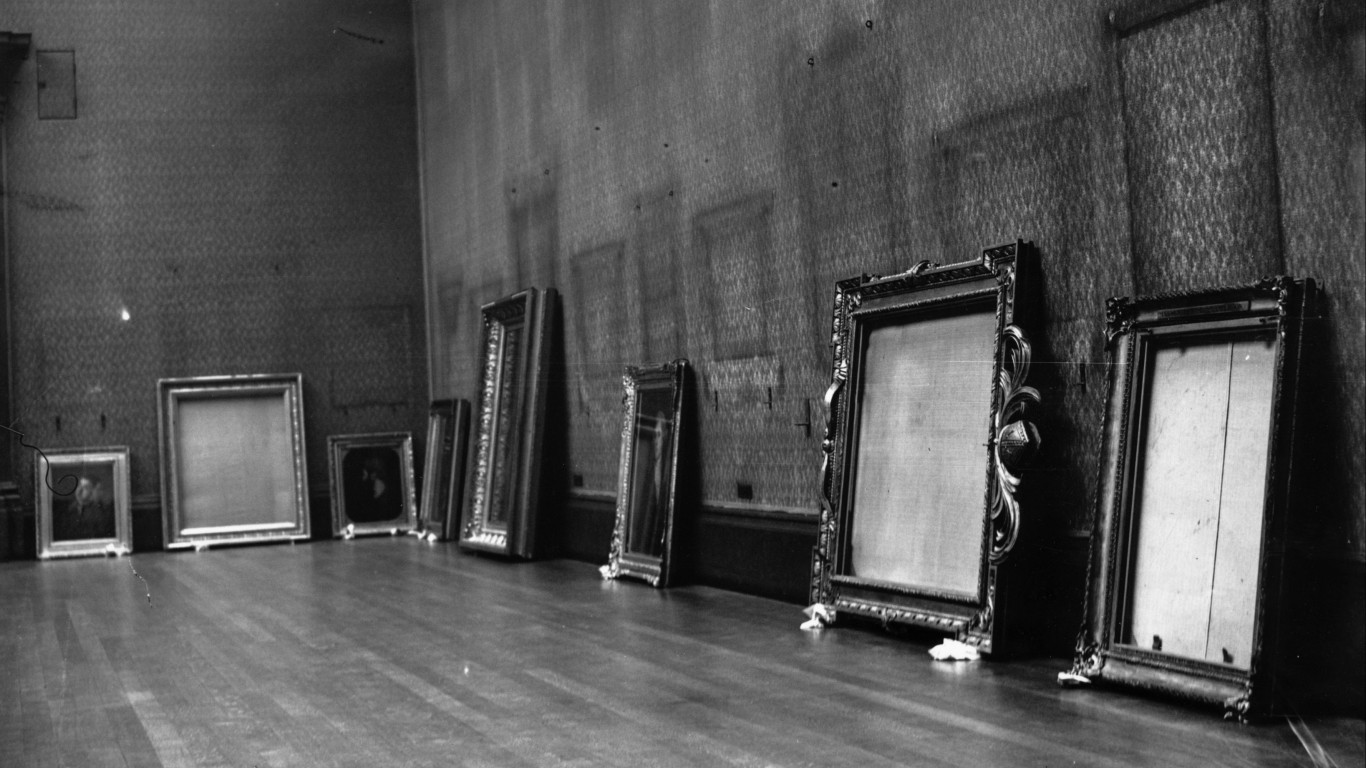
Saving art
Paintings and empty frames on the floor of the National Gallery in London, as art is being stored in an undisclosed location in anticipation of damage caused by air raids.
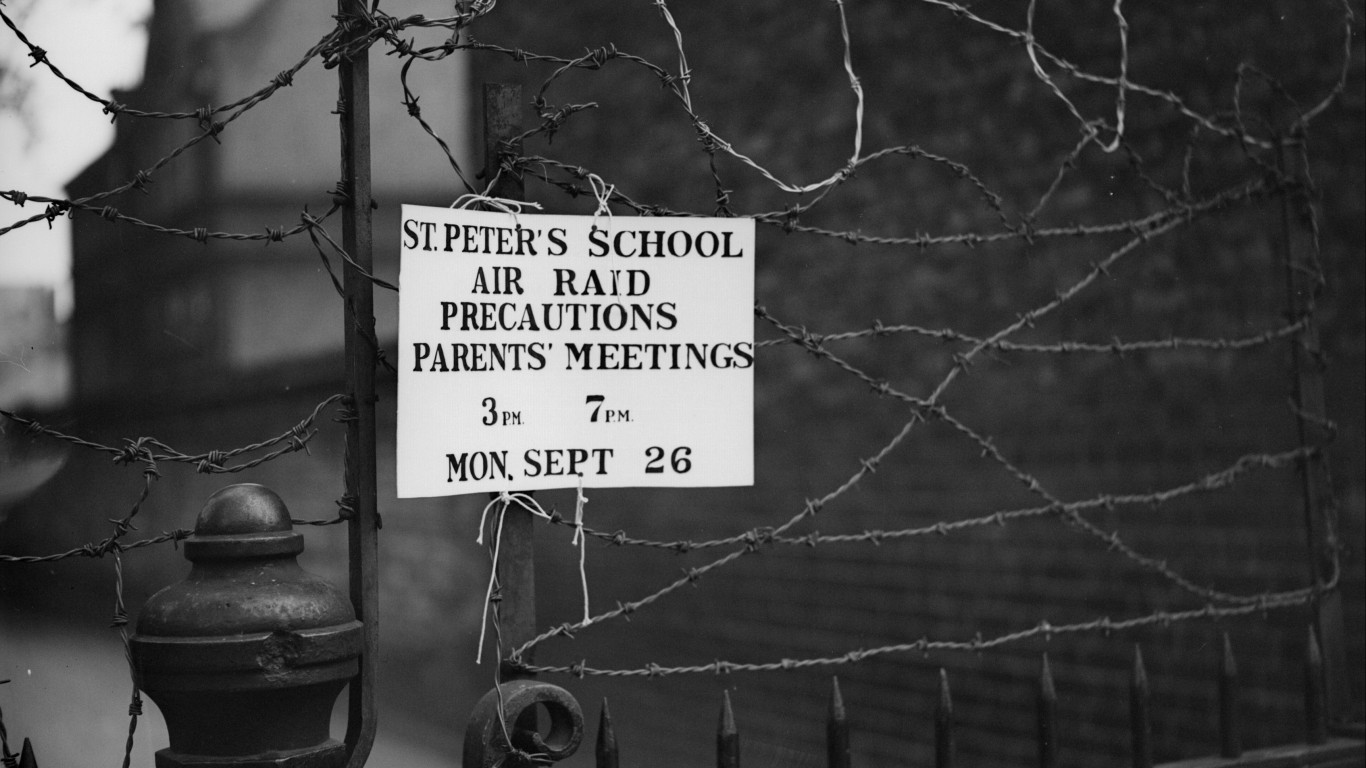
Air raid meeting
A sign announcing a meeting about air raid precautions for parents on the barbed wire fence at St Peter’s School in London.
[in-text-ad-2]
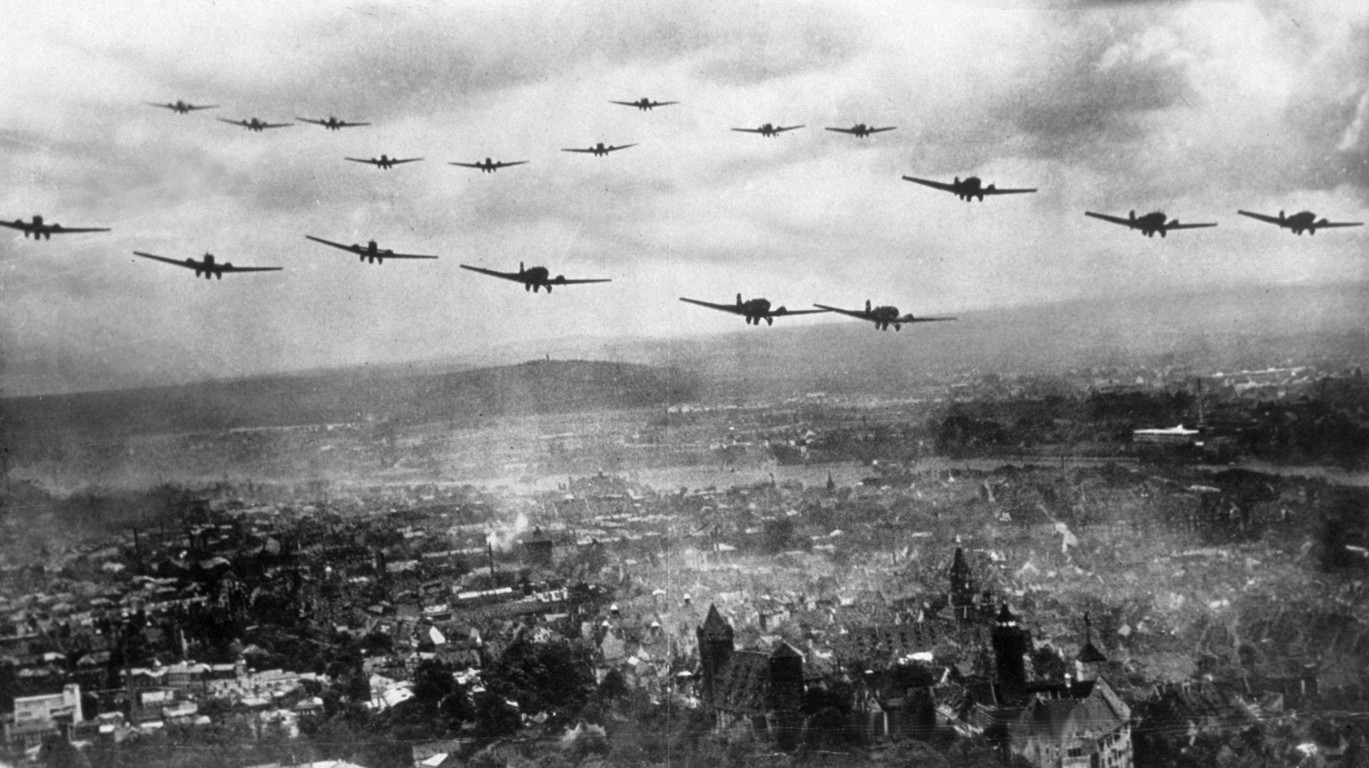
Flying in formation
Luftwaffe planes flying in formation over an unspecified city, circa 1939.
Thank you for reading! Have some feedback for us?
Contact the 24/7 Wall St. editorial team.
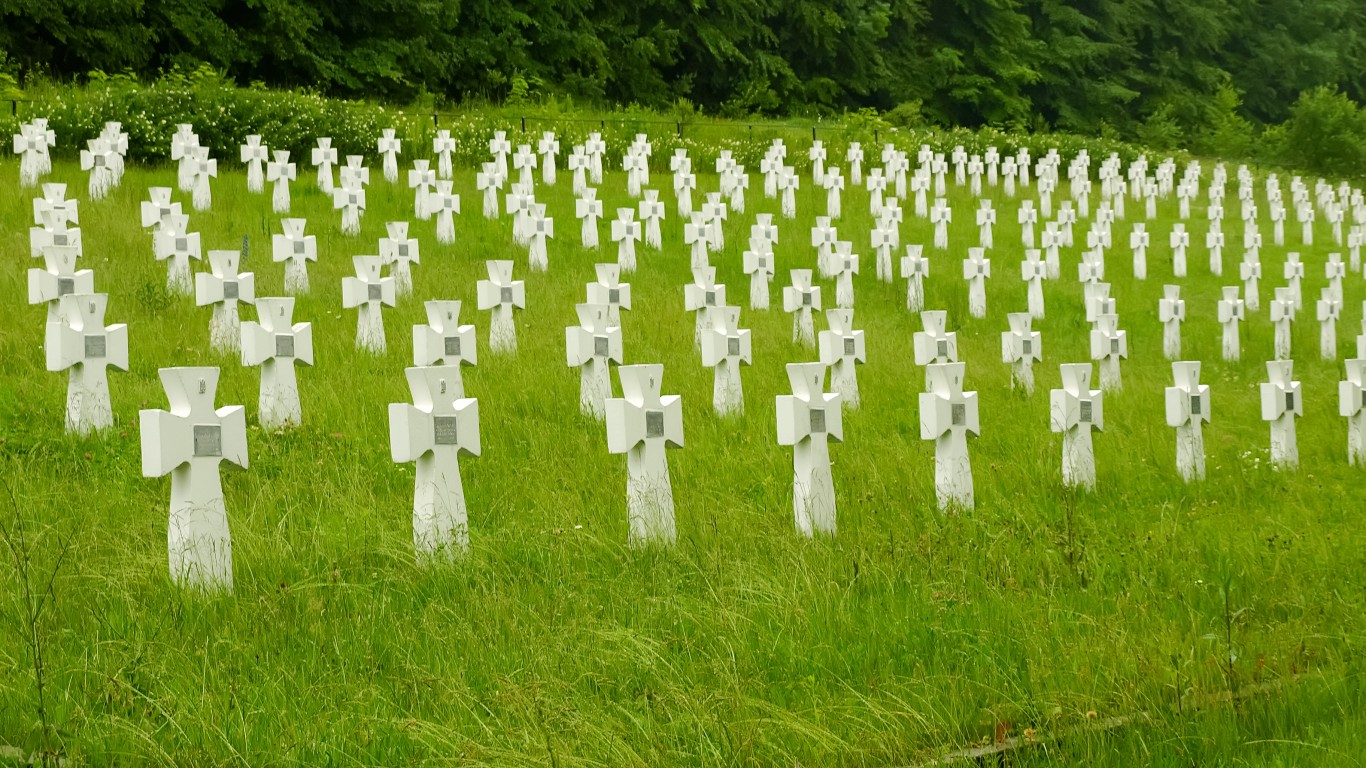 24/7 Wall St.
24/7 Wall St.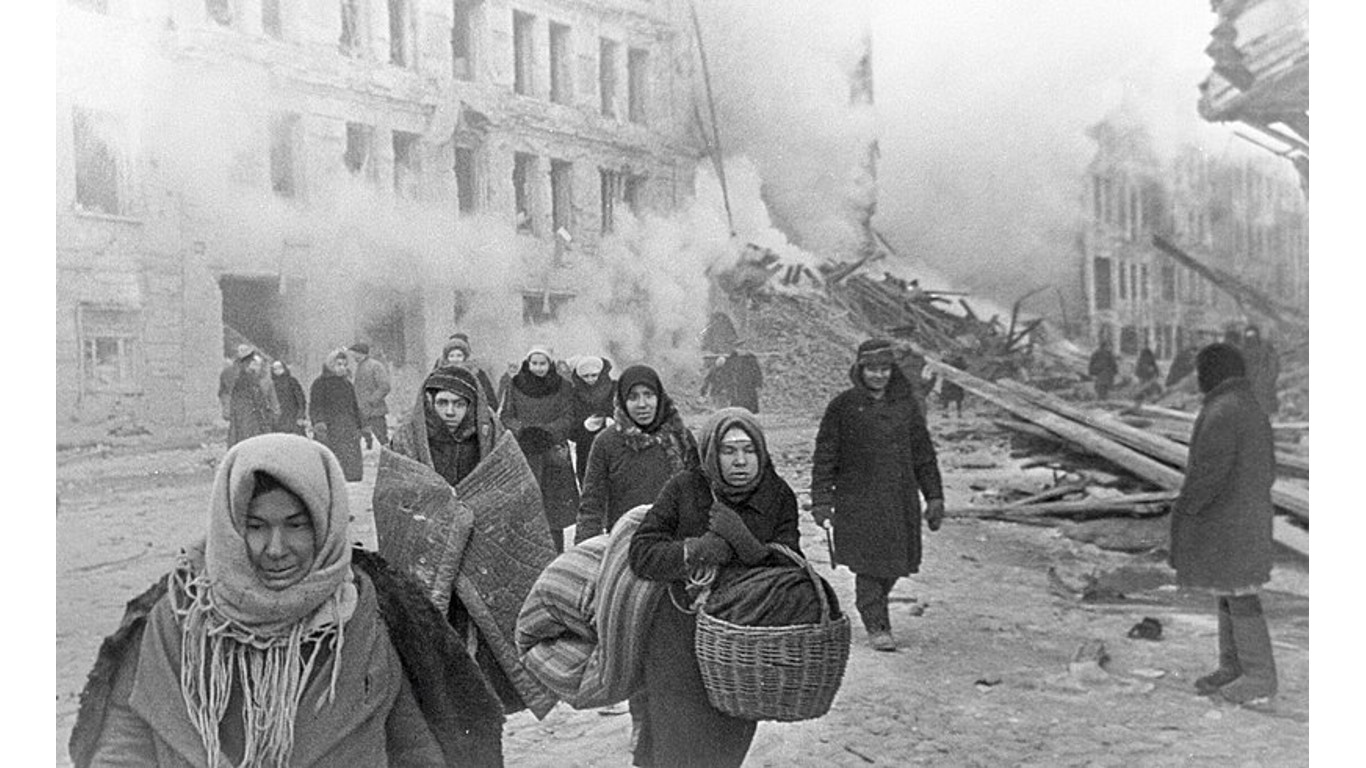
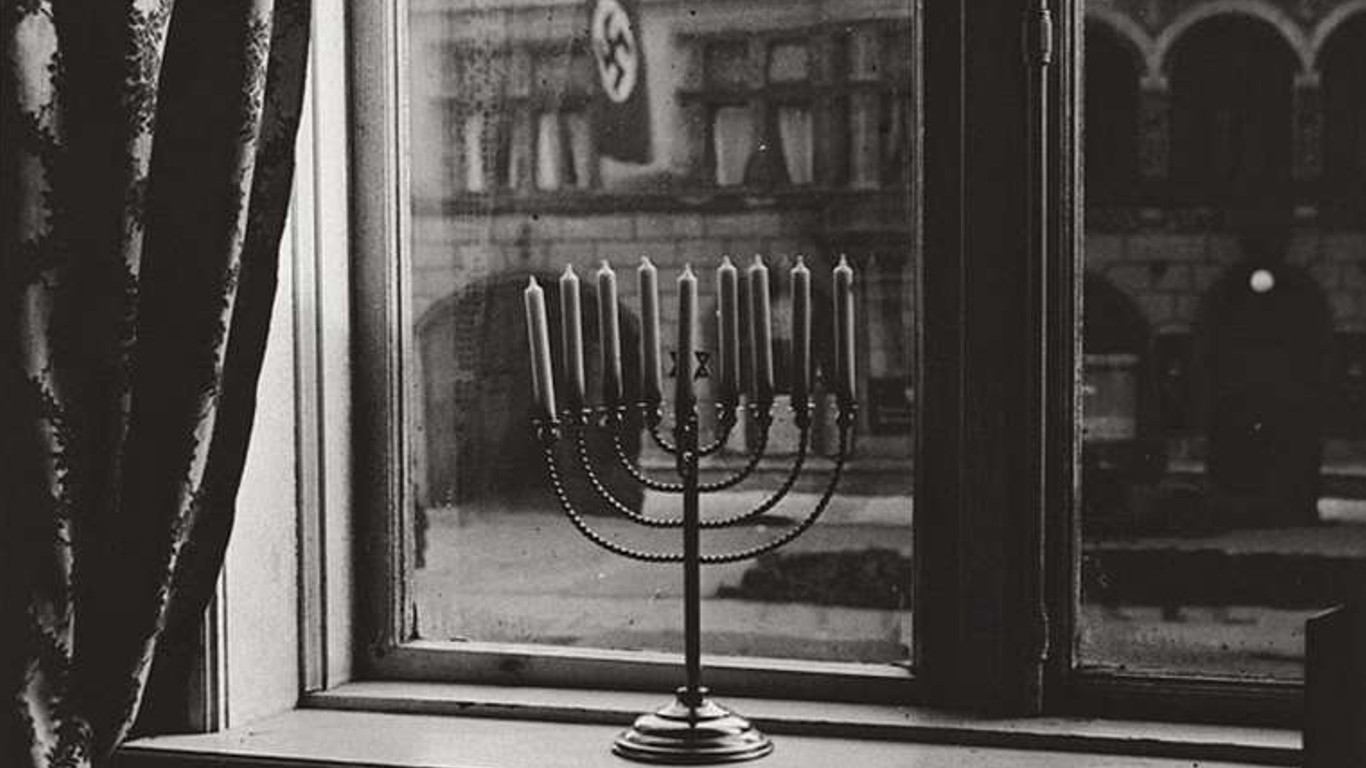 24/7 Wall St.
24/7 Wall St.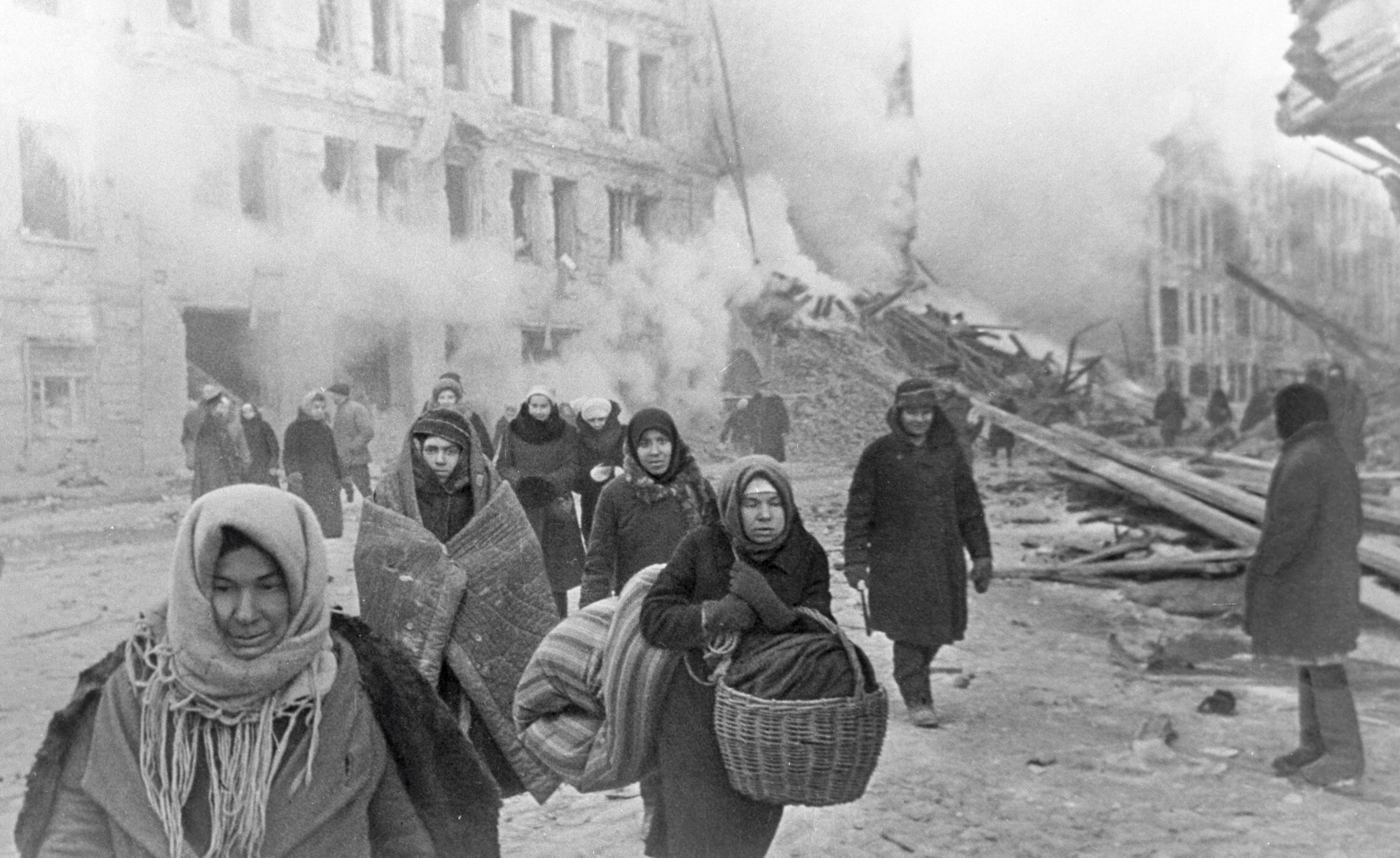 24/7 Wall St.
24/7 Wall St.